Commentary Archive

December 7, 2018
December 2018
Featured
Michael Posner, in an op-ed for Forbes’s leadership column, details the lessons to be learned from the government incited closing of the Central European University in Hungary.
November 2018
Featured
After Facebook found itself in another dilemma, our Director, Michael Posner weighed in. In a recent op-ed he details that Facebook should accept a more significant role in regulating content on their site.
In an op-ed published by Forbes, Michael Posner explains that the Trump administration’s most recent action on lowering aslyees from entering the United States is unwise and indefensible.
Michael Posner, Director of the Center for Business and Human Rights and Sharon Waxman, chief executive of the Fair Labor Association, wrote an op-ed following their trip to Cambodia focusing on the EU’s interest in manufacturing products in the country.
October 2018
Featured
After Facebook found itself in another dilemma, our Director, Michael Posner weighed in. In a recent op-ed he details that Facebook should accept a more significant role in regulating content on their site.
In an op-ed published by Forbes, Michael Posner explains that the Trump administration’s most recent action on lowering aslyees from entering the United States is unwise and indefensible.
Michael Posner, Director of the Center for Business and Human Rights and Sharon Waxman, chief executive of the Fair Labor Association, wrote an op-ed following their trip to Cambodia focusing on the EU’s interest in manufacturing products in the country.
september 2018
Featured
On September 14-15, the NYU Stern Center for Business and Human Rights hosted the fourth annual Business and Human Rights Scholars conference, co-organized with the Global Business and Human Right Scholars’ Association. The meeting brought together more than 40 academics from all over the world.
Center for Business and Human Rights Director, Michael Posner, writes that the current State Department is neglecting American values by instituting a ridiculously strict refugee admission policy. To support this view he details the various strides America has taken to promote refugee policies following World War II.
In an op-ed written by Michael Posner he argues that Gap should consider the implications of doing business in Myanmar. He details Myanmar’s complicated past and human rights issues that should be considered heavily by Gap if they want to continue their manufacturing operations in the country.
August 2018
Featured
An op-ed written by Michael Posner he calls for internet companies to disclose more information about how their algorithms work so that public scrutiny could diminish.
An op-ed, written by Michael Posner, emphasizes why quarterly reporting is important for business. He stresses that global investors take comfort from the overall integrity of the U.S. regulatory system, with the SEC at its epicenter.
In an op-ed, Michael Posner, considers Jack Dorsey’s reactions to not taking down InfoWars content on it’s platform. Posner calls for internet companies to take ownership over the real ethical responsibilities they have.
Our Research Director, Dorothee Baumann-Pauly assesses the information included in the first wave of reports that internet companies submitted to the German government, as required by the NetzDG, a new German law to fight harmful content online
Michael Posner makes a case about why Google should not be trying to get into a Chinese censorship initiative. As revealed by the news site the Intercept, and corroborated by several other news agencies, Google has begun exploratory talks with Chinese officials about the terms of its re-entry. The news reports suggest that the company has initiated an internal project called “Dragonfly,” a new search engine that would enable Google to comply with Chinese censorship laws.
July 2018
Featured
Our Director, Michael Posner, introduces the NYU Stern, Center for Business and Human Rights most recent report about Russian disinformation on Forbes.
After a trip to Myanmar and Bangladesh, our Director, Michael Posner details his thoughts while traveling. His written words highlight the overwhelming dismal response U.S. leaderships has taken in trying to remedy the catastrophic conditions which remain for the Rohingyas and other minorities in Myanmar/Burma.
Director, Michael Posner explores a timely blog post written by Microsoft President, Brad Smith. The post raised important questions about the human rights challenges relating to facial recognition technology. Smith rightly focuses on vexing challenges relating to governance of facial recognition technologies, a rapidly evolving area which requires new governance models in which both governments and companies assume greater responsibilities.
June 2018
Featured
Our Director, Michael Posner, introduces the NYU Stern, Center for Business and Human Rights most recent report about Russian disinformation on Forbes.
After a trip to Myanmar and Bangladesh, our Director, Michael Posner details his thoughts while traveling. His written words highlight the overwhelming dismal response U.S. leaderships has taken in trying to remedy the catastrophic conditions which remain for the Rohingyas and other minorities in Myanmar/Burma.
Director, Michael Posner explores a timely blog post written by Microsoft President, Brad Smith. The post raised important questions about the human rights challenges relating to facial recognition technology. Smith rightly focuses on vexing challenges relating to governance of facial recognition technologies, a rapidly evolving area which requires new governance models in which both governments and companies assume greater responsibilities.
december 2017
Featured
In a guest blog, Dan LeClair, Executive Vice President and Chief Strategy and Innovation Officer – AACSB International, asserts the importance of teaching human rights in business school curriculum. He points to the Center’s efforts to create a global network of business schools that shows how human rights issues are relevant to different business disciplines, such as accounting, finance, marketing, and information systems.
Snapchat claims it has found at least a partial solution to “fake news.” Snap, the Los Angeles-based parent of the image messaging app, recently announced it would separate social material from media. So, has Snap hit upon a solution to “fake news”? Not exactly. Snap’s redesign is not a game-changer.
November 2017
Featured
Last week, Eric Schmidt, executive chairman of Alphabet, Google’s parent company, caused a stir by suggesting publicly that the search giant would seek to “de-rank” Russia’s main international television service and a prominent Russian news website. RT, the television service, and Sputnik, the website, have been implicated by U.S. intelligence agencies in the Kremlin’s far-reaching attempt to meddle in the 2016 U.S. presidential election.
British Prime Minister Theresa May helpfully reminded us that Russia’s politically motivated online disinformation constitutes a threat to human rights. But May missed an opportunity to issue a challenge to the social media and search platforms that Russian operatives and others have used to disseminate harmful content online.
YouTube has taken a narrow but important step to protect its users and society at large from dangerous content online. The world’s most popular digital video site has markedly reduced its inventory of taped sermons delivered by the late terrorist recruiter Anwar al-Awlaki, the New York Times reported on Nov. 12.
A new Venezuelan law clamping down on social media and broadcast organizations demonstrates in extreme fashion the dangers of government regulation of online content. The measure requires operators of social media sites such as Facebook or Twitter to remove hateful posts immediately, with potential punishments of 10 to 20 years in prison for those who violate the law.
Four years after the 2013 Rana Plaza factory collapse, the two largest programs dedicated to garment factory safety in Bangladesh are nearing their end. As the Accord and Alliance get ready to leave, the NYU Stern Center for Business and Human Rights recognizes that there is still much work to be done in Bangladesh. There is also a new opportunity for locally led efforts to make real change.
October 2017
Featured
New research by the International Labor Organization (ILO) and the Ethical Trading Initiatives (ETI) confirms the Center’s research into the purchasing practices of international clothing brands and retailers and their detrimental affect working conditions in supplier factories. Now, findings and shows that these practices are not unique to Bangladesh.
september 2017
Featured
The IFC/ILO concluded that as of June 2016, the remaining funding gap of the total cost of remediating Bangladesh’s apparel industry is 448 million USD. While this estimate draws valuable attention to the magnitude of the financing gap, new research by the NYU Stern Center finds that this estimate is far too low.
August 2017
Featured
A recently released follow-up study from the BRAC University’s Centre for Entrepreneurship Development in Dhaka, confirms the NYU Stern Center’s findings. Using a similar methodology that combines analysis of several online databases and field research the BRAC University Center found over 8,000 garment factories in Bangladesh.
July 2017
Featured
The German government passed a law today requiring social media companies remove illegal, racist or slanderous content within 24 hours or face fines as large as $57 million. While governments have a legitimate interest in ensuring the safety of their citizens, laws like this are not the answer. Government legislation is a blunt tool that is likely to compound problems in this space, not solve them.
Over the past 30 years of globalization, it has become increasingly evident that, in many parts of the world, local governments are either unwilling or unable to protect their own people or the planet. As a result, governments, companies and civil society groups have formed a series of Multi-Stakeholder Initiatives (MSIs) to address environmental and human rights challenges. A review of them reveals that only few MSIs are equipped to address governance gaps
JUNE 2017
Featured
The three year extension of the Bangladesh Accord for Fire and Building Safety (“Accord”) is good news. As members of the Accord develop plans for the next four years they should pay special attention to the need for shared responsibility, local partners and subcontracting facilities.
Guest blogger Bjorn Fasterling describes a recent French law that obligates French companies to take human rights challenges into account. When assessing the implementation of the law by companies, it will be important to focus on whether it goes beyond a bureaucratic compliance and whether it extends beyond a low risk of liability regime.
may 2017
Featured
In times of regulatory rollback, limited resources, and an ever-growing list of corporate human rights abuses, fine-tuning our understanding of private governance mechanisms is more important than ever. How can the experiment of regulation through MSIs be safeguarded from a premature death in a politically hostile environment?
april 2017
Featured
Human rights challenges pose serious reputational and operational risks for corporations. Are business schools adequately preparing graduates to manage these matters?
Monday, April 24 marks the fourth anniversary of the Rana Plaza factory tragedy in Dhaka, Bangladesh. More than 1,100 people were killed and more than 2,500 injured when the eight-story factory complex collapsed. The Accord and Alliance programs have one year left in their collective efforts to make the Bangladeshi garment industry safe and sustainable. What have they have achieved to date and what remains to be done?
The Trump administration’s intention to sell new weapons to Saudi Arabia, ignores the human rights abuses happening in those countries and fail to meet a standard articulated by Secretary of State Rex Tillerson at his confirmation hearing in January.
December 2016
Featured
In October, the international football governing association FIFA released a report entitled FIFA 2.0: Vision for the Future. It is not clear from the FIFA 2.0 report — or from other public statements — whether FIFA has made meaningful progress toward any of Ruggie’s recommendations.
November 2016
Featured
As an undergraduate student Kimi Rodriguez struggled to fit her aspirations of pursuing a private sector career with a significant social impact – “doing well while doing good” – with the realities of the job market. She talks about how her fellowship at PepsiCo was exactly what she was looking for – the opportunity to work in an influential multinational company and help shape their global human rights strategy.
october 2016
Featured
My Fellowship provided the experience that I had been looking for: a look into the details of how international supply chains specifically impact people in many different companies around the world, and what it takes to manage this supply chain.
Last month’s criminal verdict against researcher Andy Hall and attempts to suppress an Amnesty International report have the very real potential to stifle vital research and activism on labor rights when conditions for workers are getting worse.
sEPTEMBER 2016
Featured
The Center for Business and Human Rights recently completed a research mission to Bangladesh and India focused on the recruitment of migrant construction workers bound for nations in the Arabian Gulf region. Early findings point to the need for companies operating in the Gulf to look at ways in which their own policies might contribute to cycles of debt entered into by many migrant workers.
AUGUST 2016
Featured
With a brutal terrorist attack on July 1, cyber theft of $101 million of Bangladesh’s assets through the Federal Reserve Bank of New York in February, and a deadly factory collapse that killed more than 1,100 workers in its powerhouse apparel sector in 2013, Bangladesh is looking like a potential trouble spot for the U.S. Here are three issues that should be on the agenda as Kerry lands in Dhaka on Monday.
July 2016
Featured
At the end of June, the U.S. State Department released its annual Trafficking in Persons Report which indicates that “Ghana is a source, transit, and destination country for women, men, and children” affected by human trafficking. The State Department’s findings on Ghana are an important reminder for advocates, companies, and governments that human trafficking in fishing is a global problem.
The UAE government recently released its 1st annual “Worker Welfare Report.” The report represents a positive step toward transparency but also makes it clear that there is a long way to go when it comes to issues like migrant worker recruitment.
June 2016
Featured
A quiet story has been breaking in the Bangladeshi press over the last month about the number of factories producing for the garment sector. New data on factories released by the BGMEA has added to this dialogue. Sarah contextualizes the important role data and transparency play in protecting all workers in the supply chain.
This month, the International Labor Organization (ILO) is holding its three-week International Labor Conference, where supply chains will take center stage. Sarah highlights the three big questions to look out for as the meeting unfolds.
The 2016 International Labor Conference has spurred a flurry of reports on supply chains. Many call for a new ILO treaty on Global Supply Chains. Justine argues that laws will help but more rigorous discussion is needed on how to attribute responsibility up and down the chain – starting from the top using their leverage to restructure contracts.
May 2016
Featured
Mike Posner delivered the Annual Human Rights Lecture entitled, “Making Progress: Human Rights as An Essential Element of Sustainable Business” at the Australian Human Rights Centre at the University of New South Wales.
As companies work to meet their responsibility to respect human rights, metrics that help internal and external stakeholders understand the social impacts of their operations are urgently needed. While numerous measurement efforts have emerged in recent years, none has yet advanced a concise set of user-friendly, industry-specific indicators of strong performance.
Today, companies are operating in a fishbowl, where their customers, investors, the media, and regulators can see their activities more and more clearly, even in remote locations. Transparency may come with costs. But the price of not knowing is high and getting higher.
april 2016
Featured
The expectation for global corporations to behave ethically is not new. However, demand is finally taking shape as a distinct business and human rights (BHR) field emerges in academia and practice.
The Institute of Business Ethics at the University of St Gallen, the Business and Human Rights Journal, and our Center for Business and Human Rights at NYU, brought together 13 PhD researchers from five continents for the first “BHR Young Researchers Summit.” The objective of the Summit was to advance their research projects and form a network of emerging scholars in the field.
march 2016
Featured
On the anniversary of the Triangle factory fire, it’s important to remember that tragedy doesn’t always yield opportunity. In a globally integrated economy, we can’t rely on poorly resourced governments to undertake similar transitions toward greater oversight and greater value on their own.
As it finalizes its own National Action Plan, the United States is well poised to set a new standard for government action to advance efforts by businesses to respect human rights. The test will be whether the plan includes meaningful changes in US policies and practices.
As the President prepares to become the first U.S. president since Calvin Coolidge to travel to Havana, Sarah Labowitz offers four areas to watch from a business and human rights perspective.
In honor of International Women’s Day, Sarah reflects on the power of an all female research team and the challenges women in research and higher education still face.
Inspired by the keynote speaker at the 2016 NYU Social Impact Symposium; Dalila Wilson-Scott, Head of Global Philanthropy at JPMorgan Chase & Co. and president of the JPMorgan Chase Foundation; Kimberly Rodriguez shares the value of incorporating CSR into a company’s core business operations.
february 2016
Featured
This blog, the second in the series, “Filling the Governance Gap: Multi-stakeholder Standard-setting” examines the benefits and risks of a tiered membership structure.
Large companies often express their desire to improve the recruitment process to avoid some of the human rights pitfalls associated with unethical recruitment, like worker fees, bribes, and fraud. But they also know that when it comes to recruitment, ethics are not free, and the current system can pay.
This week, the Global Network Initiative (GNI) announced that seven telecom companies have joined its ranks as observers according to terms approved at GNI’s December board meeting. Given our serious concerns about the terms of the agreement to admit the telecom companies, as well as GNI’s overall direction at this time, we are regretfully withdrawing our participation in the initiative.
january 2016
Featured
In her New Year’s address, German chancellor Angela Merkel urged Germans to view the almost 1.1 million refugees that arrived in Germany in 2015 as an “opportunity for tomorrow.” The decisiveness and speed of some German businesses to set up integration programs for refugees can be regarded as an example for companies across Europe.
In business practice, the urgency to manage BHR challenges has been growing steadily in the past years. With this in mind, it will be interesting to see if BHR courses become critical for future business and career success, or will continue to be treated as a “nice-to-have addition.”
Multi-stakeholder Initiatives (MSIs) have emerged to address governance gaps that result from transnational companies’ (TNCs) operations in states that cannot, or will not, fulfill their obligations to protect the rights of their own citizens. MSI boards are tasked with working together to reach the goals of the MSI.
December 2015
Featured
In November, David Segall traveled to India on a fact-finding mission as part of the Center’s project on the recruitment of Gulf-bound migrant construction workers. He shares both the hypothesis that were confirmed as well as some surprising and important complexities.
Kimi Rodriguez, Stern MBA 1 student and graduate fellow with the Center for Business and Human Rights, describes the perception of migrant workers in the Philippines as “the new heroes.”
Sarah Labowitz explains why the time is right for improving factory conditions in Bangladesh, and what can be done to protect workers.
november 2015
Featured
Michael Posner and Marcela Manubens, Chairs of the WEF Global Council on Human Rights, propose Shared Responsibility, a new model to devise collective solutions and share the financial costs of addressing the most entrenched human rights problems in complex supply chains.
Professor Posner’s fall MBA course explores the choices global businesses face in addressing human rights challenges in their core business operations. In teaching the course, he invites industry leaders to offer their unique perspective and experience in meeting these challenges and enhancing respect for human rights around the globe.
Over the last 5 years we’ve seen an upward trend of tech companies issuing transparency reports. But they are just one element in a much bigger debate about how tech companies and governments interact—and how user privacy and expression can be at risk. A project co-chaired by the Center issued a report last Monday on how to improve transparency overall as a form of accountability in this process.
Any measurement of progress requires a baseline – determining whether the dial has moved can only be assessed if we know where it was before. Companies in the same industry face similar human rights challenges. They should therefore define the same priorities as they address human rights challenges.
October 2015
Featured
Expanded supply chains also have created millions of new jobs, helping lift hundreds of millions of people out of extreme poverty. But the rapid growth of supply chains also has brought new challenges, subjecting many of those who work in these industries to exploitation and unsafe working conditions that fail to meet international labour rights standards. How can human rights defenders contribute to improving working conditions while encouraging market growth?
Managing risk and promoting sustainability in global supply chains has been a hot topic for over a decade. However, there is still a lack of actionable frameworks to address these pressing challenges.
Last week, the office of Switzerland’s National Contact Point (NCP) quietly issued what may turn out to be a very important ruling. It essentially rejected FIFA’s arguments that as a not-for-profit it is exempted from OECD guidelines, and that the organization cannot directly influence standards in Qatar.
As sensitive data are shared among an increasing number of parties, technology has outpaced laws and policies governing privacy and profiling. To address this gap, the Center kicked off a new project to help to map the linkages between the consumer, companies supplying or publishing ads, and the data collectors, brokers, and analytics firms in between.
The tides appear to be changing. Just this year Larry Fink, President and CEO of Blackrock, the world’s largest asset manager, sent a public letter to 250 leading companies urging them to resist the pressures of short-term investors and to pursue more sustainable business strategies
Today, global companies report on their supply chain activities in a dizzying array of formats. The problem with most of these reports is that they fail to identify a significant source of risk for human and labor rights violations in companies’ global supply chains: sub-tier suppliers.
Interest in data that assesses and ranks a company’s sustainability performance has been growing substantially over the past decade. Yet the challenge remains, can an assessment methodology find a balance between being thorough yet concise?
Lourdes Zapata, MBA 2, and inaugural Business and Human Rights Fellow shares lessons learned from her experience as an intern for DIRECTV Latin America.
Jodi Chao, MBA 2 and inaugural Business and Human Rights Fellow, reflects on her passion for human rights and how business school has taught her you can do well and do good.
September 2015
Featured
While news outlets erupted over news that Swiss authorities are pursuing a criminal probe of outgoing FIFA President Joseph Blatter, FIFA also quietly announced the start date of the 2022 Qatar World Cup. It reminds us of the ongoing difficulties faced by the thousands of migrant construction workers in Qatar who are laying the infrastructure for this massive undertaking.
In the last few weeks a number of significant legal developments have taken place that should make companies sit up and take stock of their human rights and labor rights obligations in their supply chains.
The Business Supply Chain Transparency on Trafficking and Slavery Act of 2015 is the latest in a string of recent domestic legislative acts and ruling aimed at holding corporations accountable for their entire supply chains, not just their own employees or direct operations. Read more about this key piece of legislation for the global fight against human trafficking, forced labor, and the worst forms of child labor.
Lynn Walker Huntley, who had a profound impact on the evolution of the modern human rights movement, died on August 30, 2015. We remember her legacy of service, advocacy and leadership.
Mike Posner interviewed Strive Masiyiwa, founder of Econet Wireless, as part of NYU Stern’s MBA orientation program, LAUNCH. He reflected on how business leaders not only can, but are using the power of business to create value for society.
AUGUST 2015
Featured
Over the last two decades the free-on-board price, an innocuous trade term, has become an epithet uttered with increasing distaste and venom by manufacturers, and the further down the supply chain you go, the greater the distaste. Why?
The FOB (free on board) price of apparel paid by brands and retailers to their suppliers has been falling for over a decade. Signs of prices firming up should provide a little comfort down the supply chain, but will it?
Kohlberg, who died at age 90 in late July, was much more than a prominent and successful investor. He was a thoughtful and committed public citizen, a dedicated and extraordinarily generous philanthropist, and a passionate advocate for the causes he supported – ethical investing chief among them.
The United States rarely makes labor rights a deciding factor when determining trade policy, but Bangladesh is proving to be an exception.
Research Director Dorothee Baumann Pauly looks at three factors that have made business and human rights a mega trend in management studies.
April Gu details the USCIB-NYU Stern Center for Business and Human Rights Fellowship and the day long training they received with industry experts.
JULY 2015
Featured
Mike Posner and Sienna Merope-Synge share their experience working with the World Economic Forum’s Global Council Agenda on Human Rights to increase safety in the manufacturing supply chain.
Nicole Kenny, rising NYU Stern MBA, shares her experience to launch a social impact strategy for Peet Rivko, a new luxury skin care line.
JUNE 2015
Featured
Dorothée Baumann-Pauly discusses the importance of defining due diligence as Switzerland considers a mandatory human rights monitoring initiative for Swiss companies.
April Gu provides a summary of the academic year highlighting the important work our Graduate Fellows.
MAY 2015
Featured
Vijay Padmanabhan stresses the need for more robust human rights standards in the global supply chain that goes beyond the CSR model.
Katharine Kendrick summarizes the 2015 Freedom Online Coalition Conference emphasizing the need for greater transparency from companies and governments alike as well as continued commitment to respecting human rights online.
Katharine Kendrick describes the work of the Freedom Online Coalition, specifically around promoting transparent relationships between governments and ICT companies.
APRIL 2015
Featured
Dorothée Baumann Pauly comments on the Economist Intelligence Unit’s recent report entitled, “The Road from Principles to Practice: Today’s Challenges for Business to Respecting Human Rights.”
To ensure the long term sustainability of Bangladesh’s garment sector, indirect sourcing mechanisms must be transparent and improved.
March 2015
Featured
The Center launches a new project aimed at improving workers’ rights in the construction industry.
Katharine Kendrick on why hardware companies ‘off the shelf’ defense is no longer valid.
Dorothée Baumann-Pauly, the Center’s Research Director, describes her and her colleagues’ research on multi-stakeholder initiatives.
Tabinda Murshed is a 2014 alum of NYU. She recently returned to Bangladesh and joined her family’s garment business. She reflects on the political violence and its effect on business.
Mattie Bekink examines the implications of APG, the Netherlands’ largest pension fund, decision not to invest in alternative energy sources.
The Center launches new fellowship opportunities focusing on business and human rights for NYU students.
Mattie Bekink calls on Citi to include human rights in its $100 billion commitment to address climate change, environmental risks, and supply chains.
FEBRUARY 2015
Featured
Two years after arriving at NYU Stern, Sarah Labowitz and Mike Posner reflect on launching the website and starting the Center.
Graduate fellow Sarah Manning (MBA ’16) explains the Center’s project to map where garments actually are being produced in Bangladesh.
A new report by the University of Leicester concludes that unauthorized subcontracting is a mainstream business practice, even in Europe.
The Charlie Hebdo attacks have sparked a rush of proposals from the French and UK governments for greater website blocking that will curtail freedom of expression.
Fostering entrepreneurship and oversight among smallscale players in the garment sector is key to Bangladesh’s future.
Sarah Labowitz on the irony of celebrating women’s empowerment as the lone woman on a panel with 11 men.
The Center co-hosted the first open dialogue on the White House’s recently announced development of a National Action Plan on Responsible Business Conduct.
In September, the Center was accepted as the first business school member of the Global Network Initiative (GNI), the leading international initiative on business and human rights in the information communications technology sector.
Intel Corporation CEO Brian Krzanich joined Michael Posner at NYU Stern to discuss how the company is addressing conflict minerals in its supply chain.
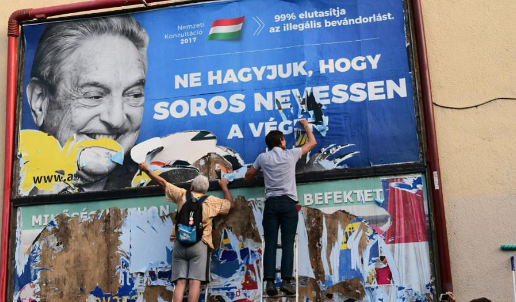

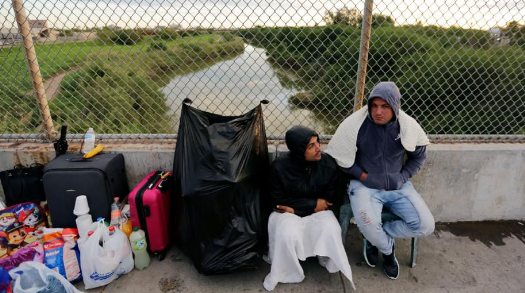
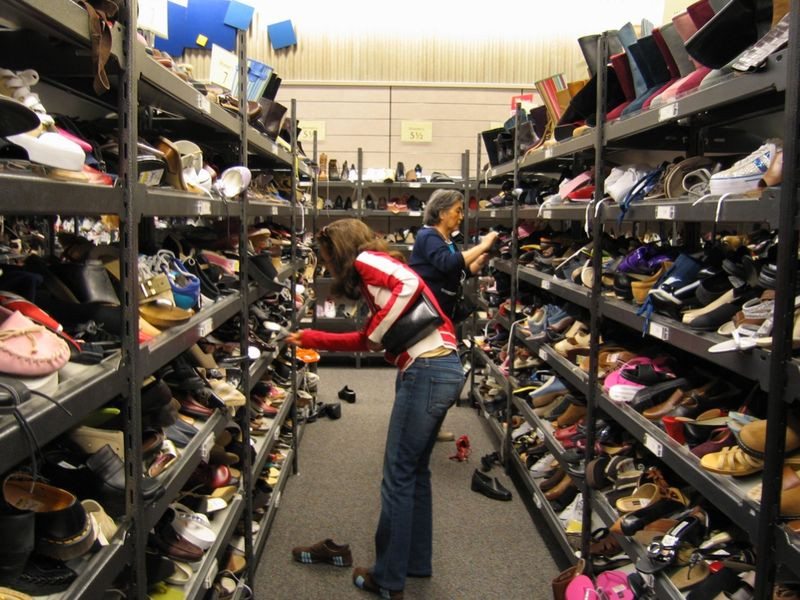

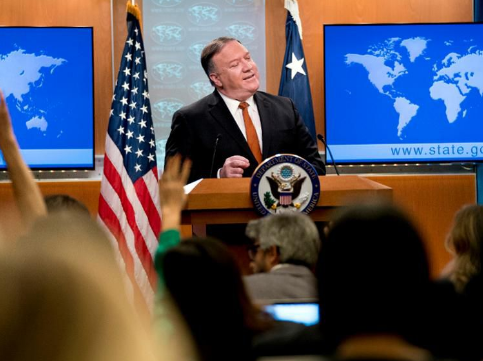
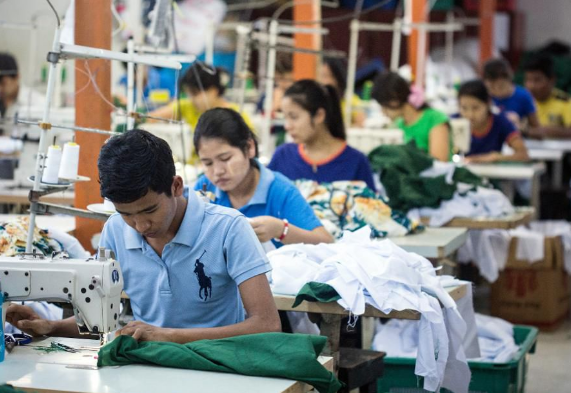

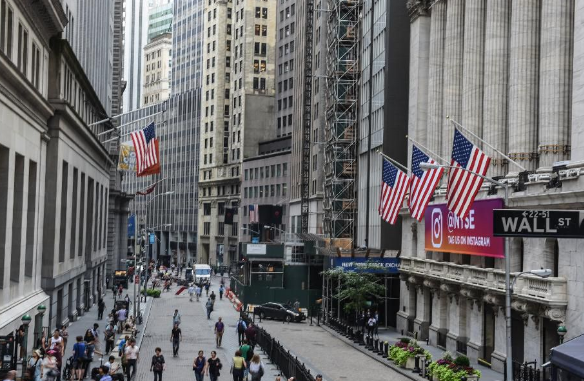


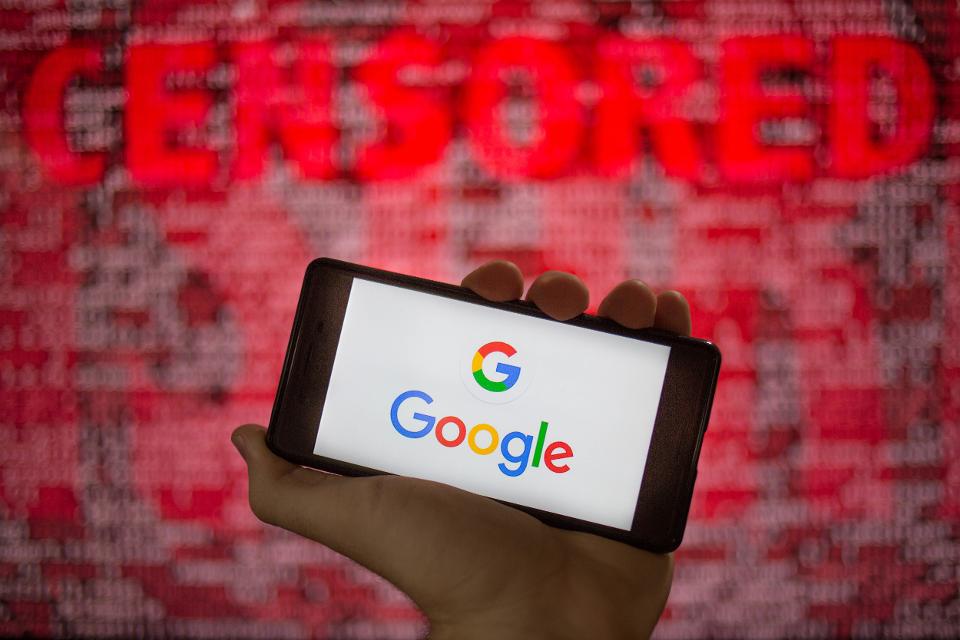

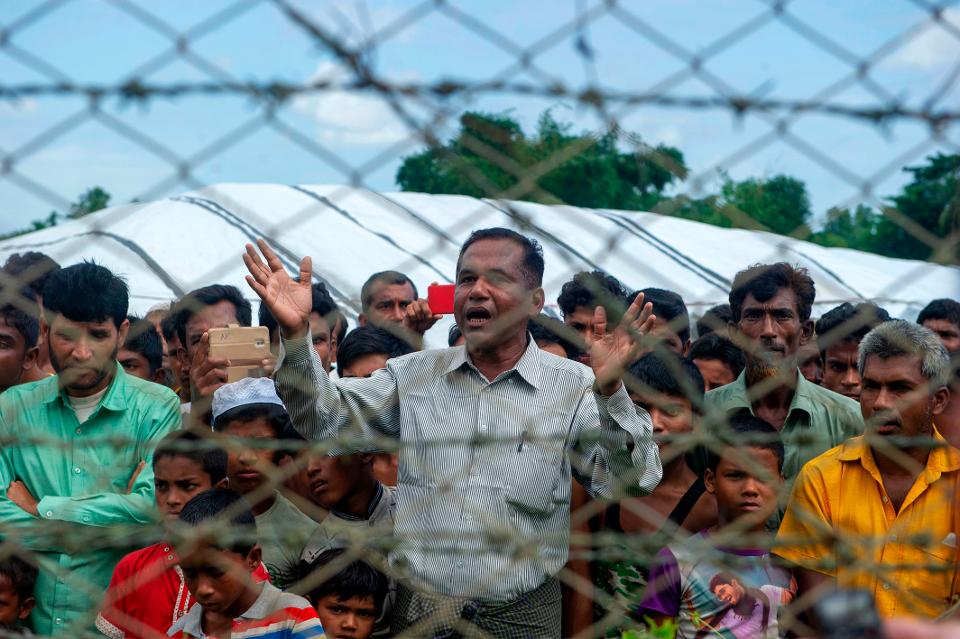

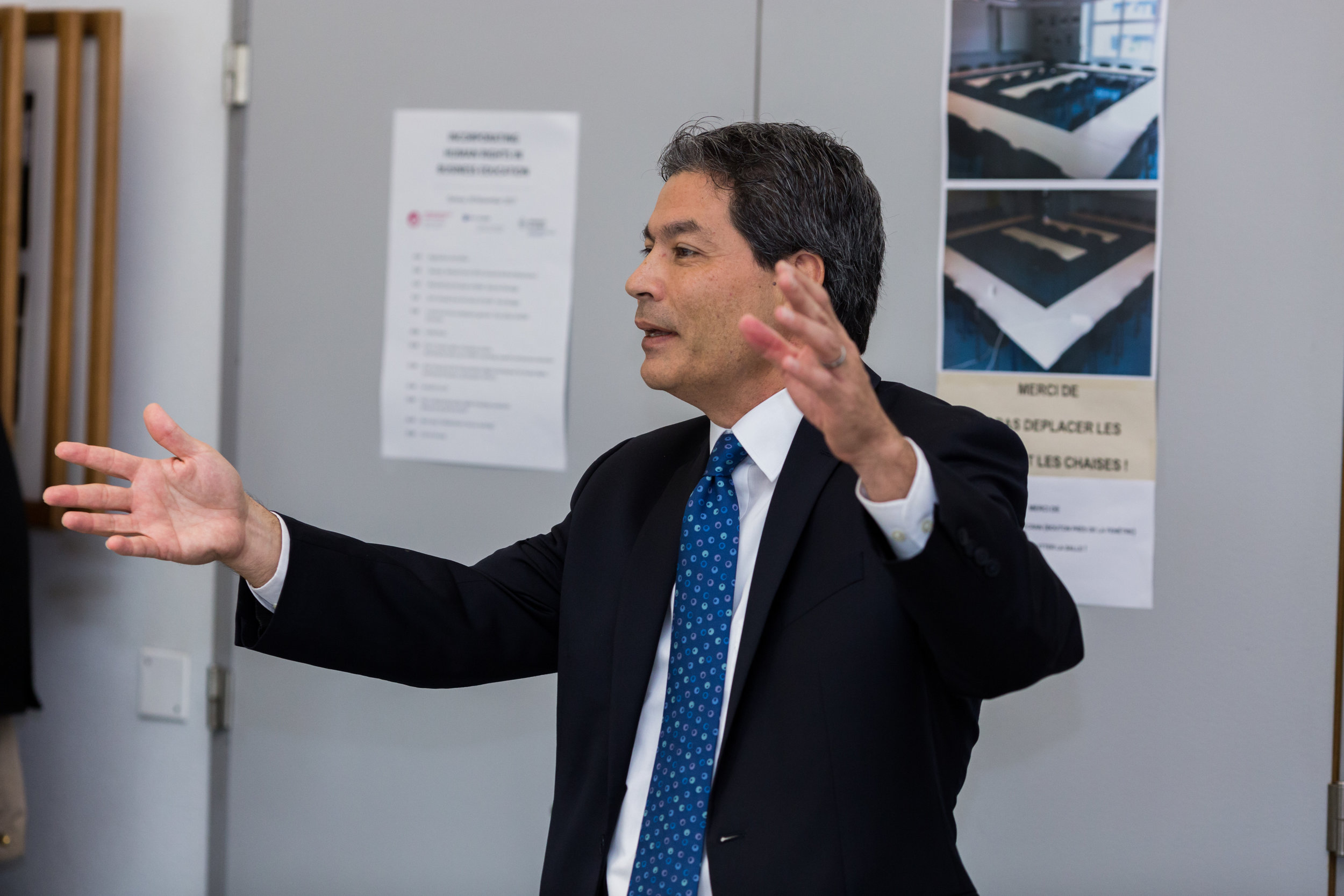

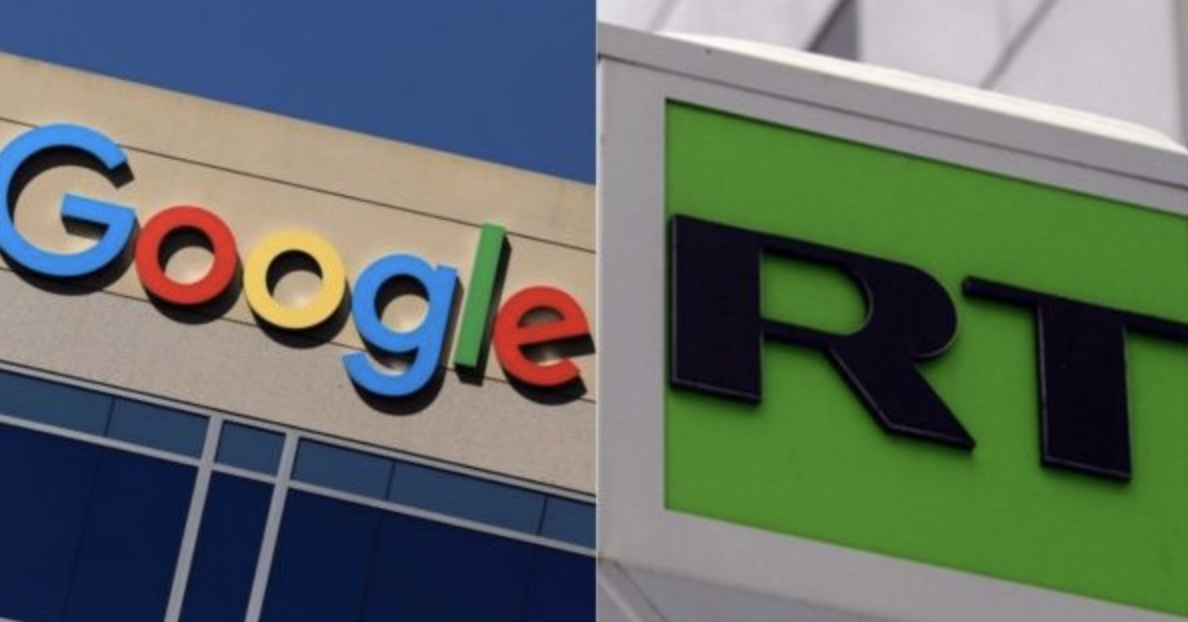



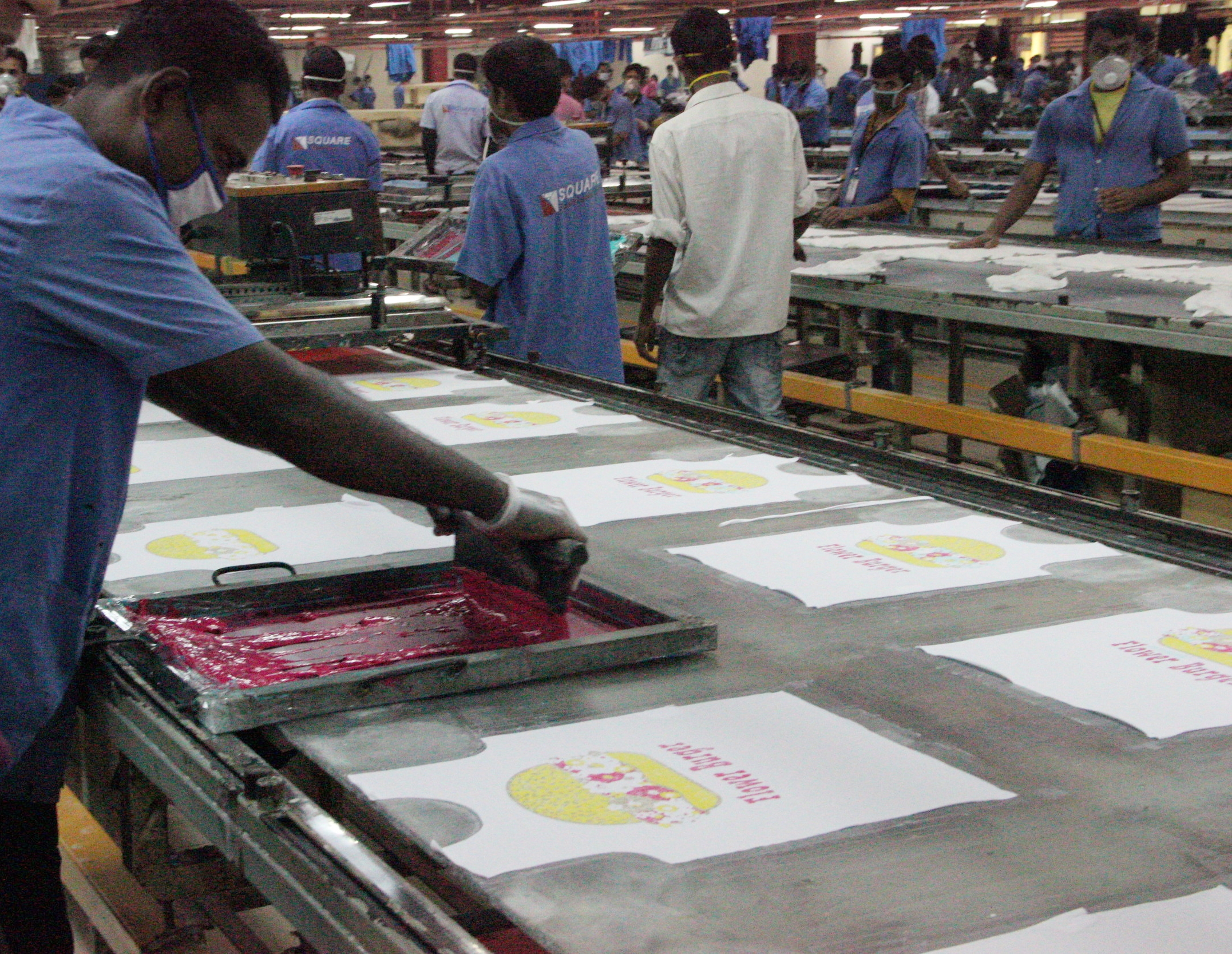
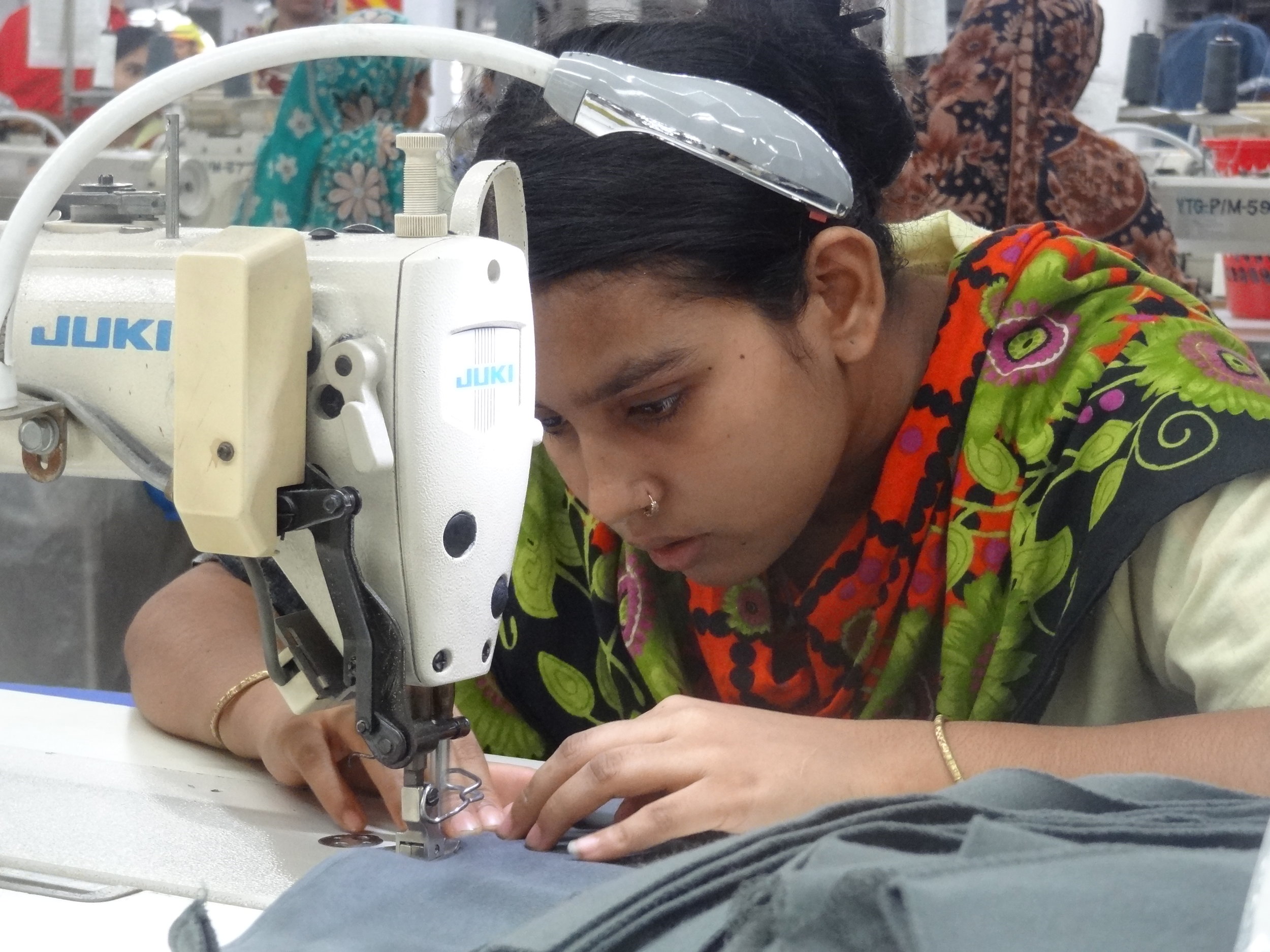
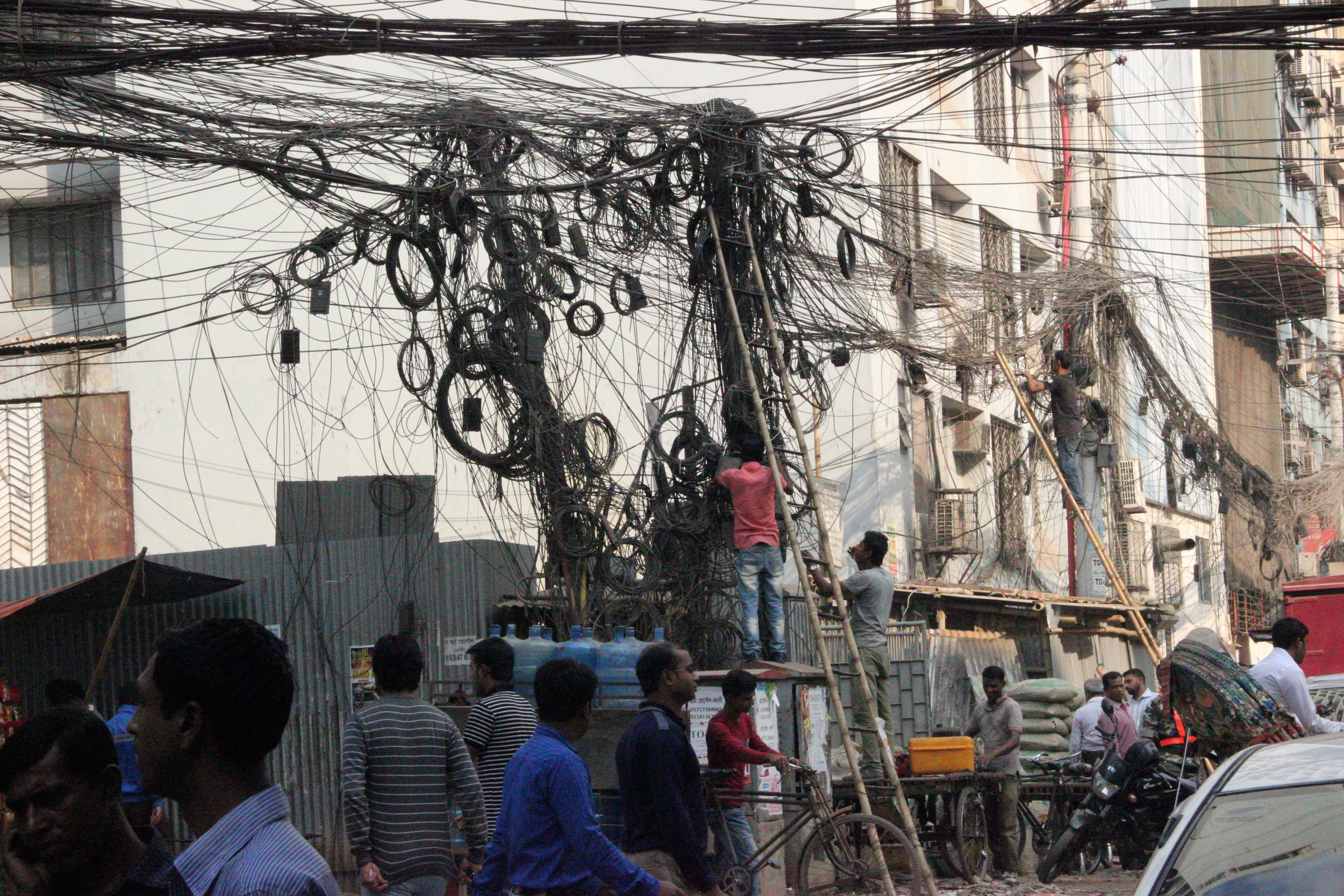
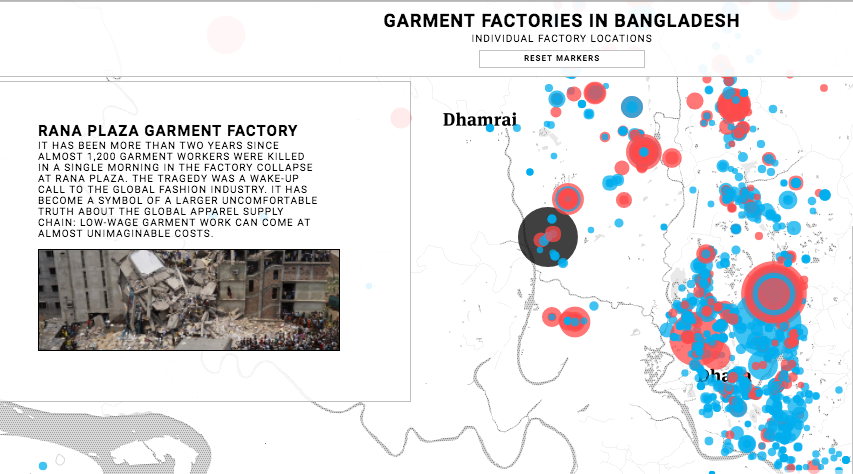


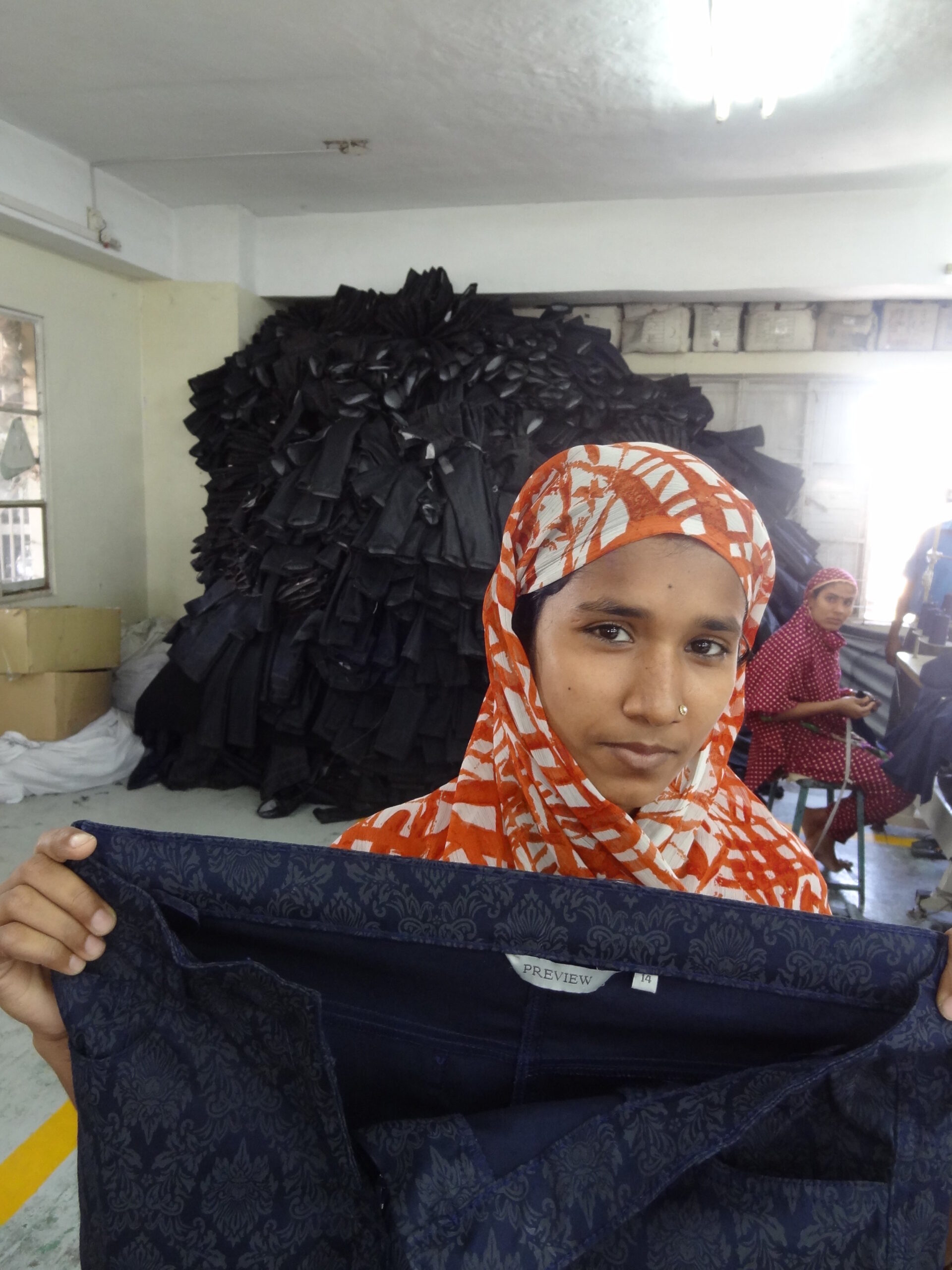

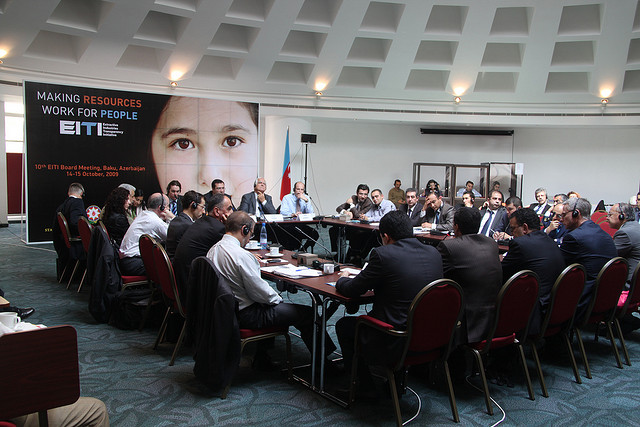
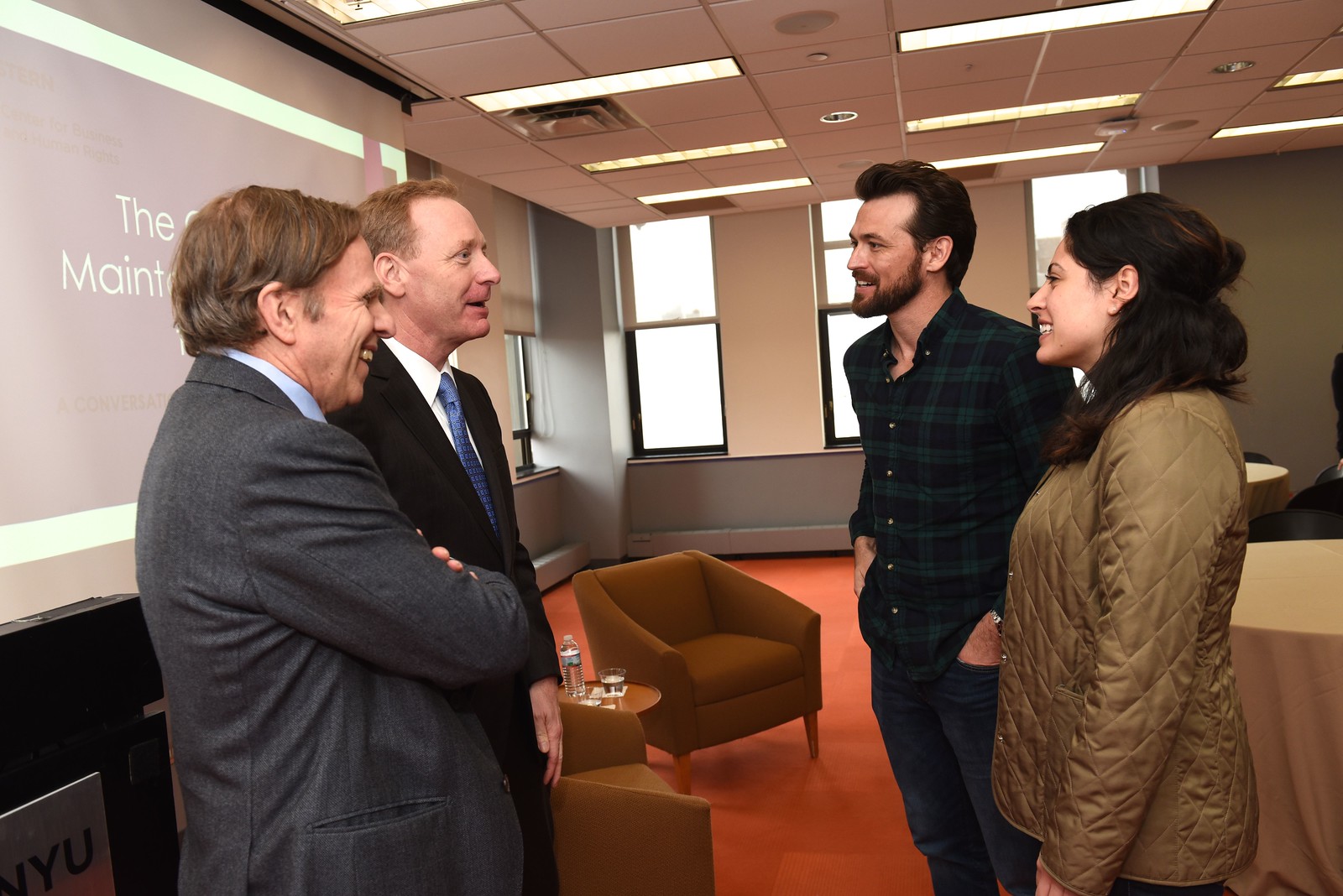
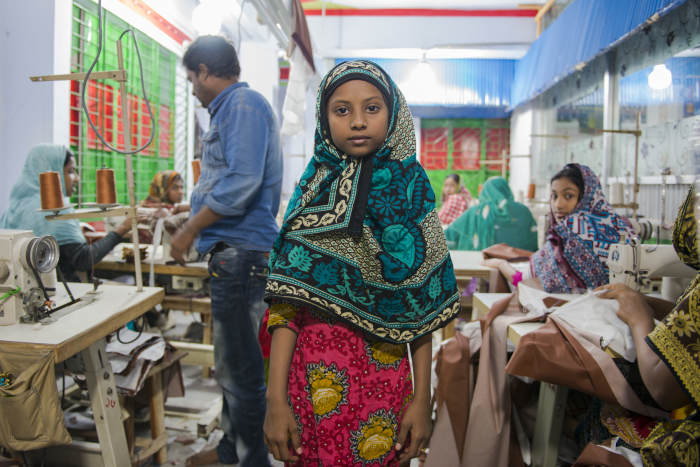
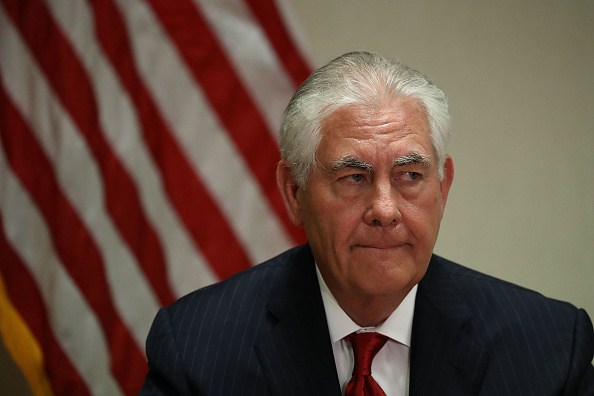


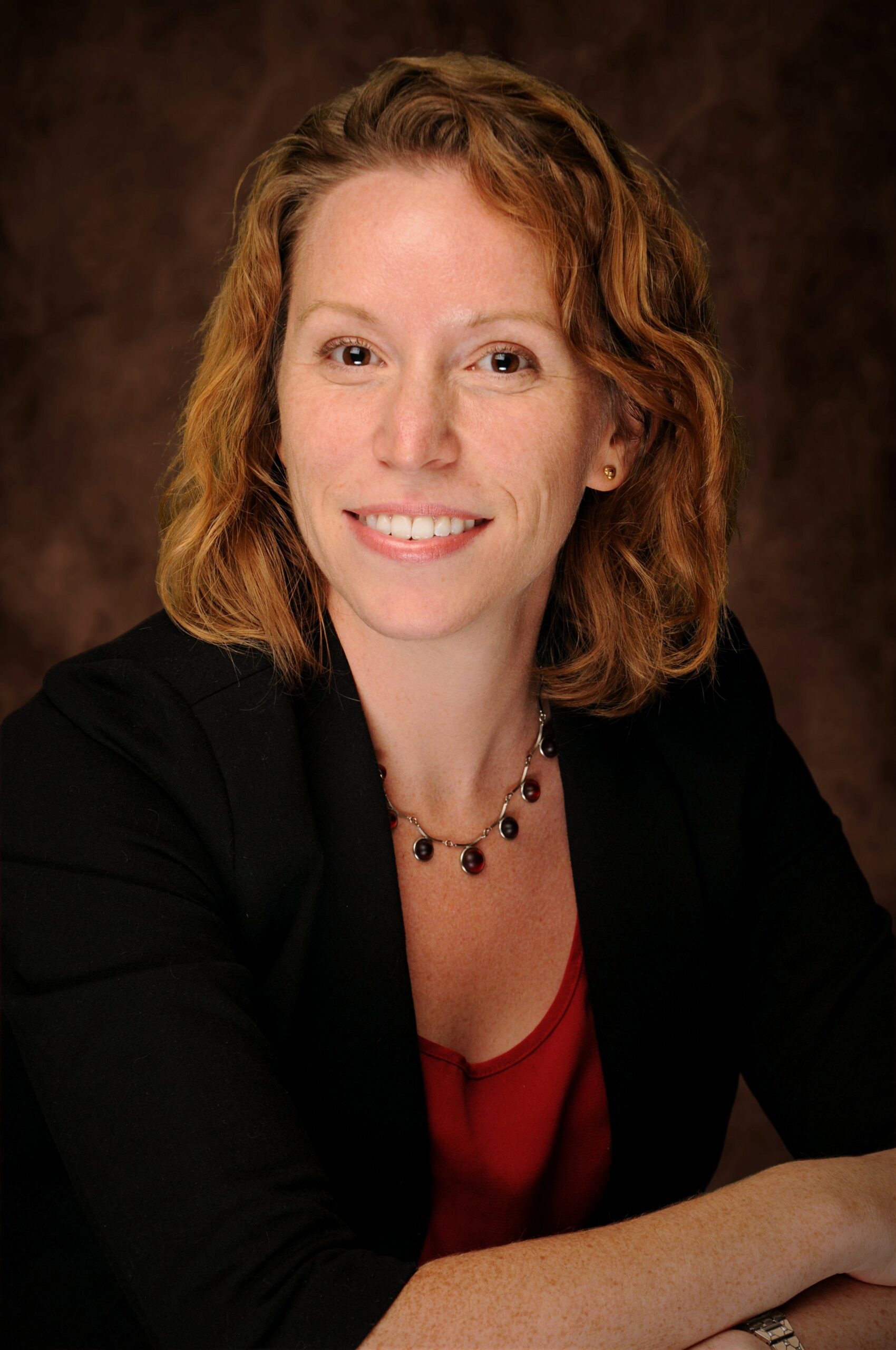



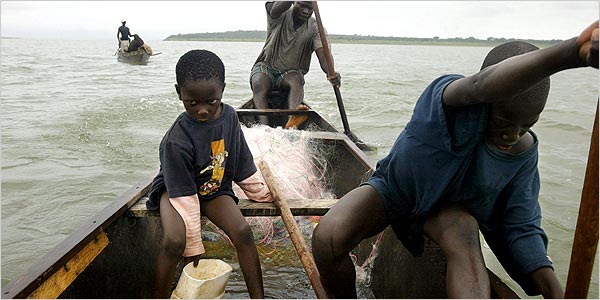

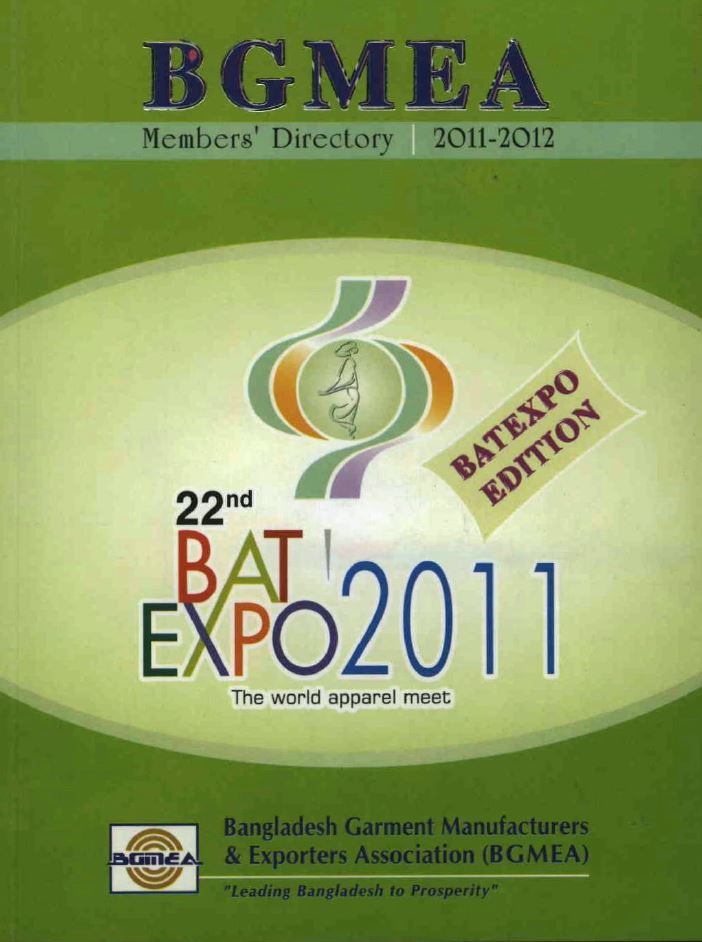
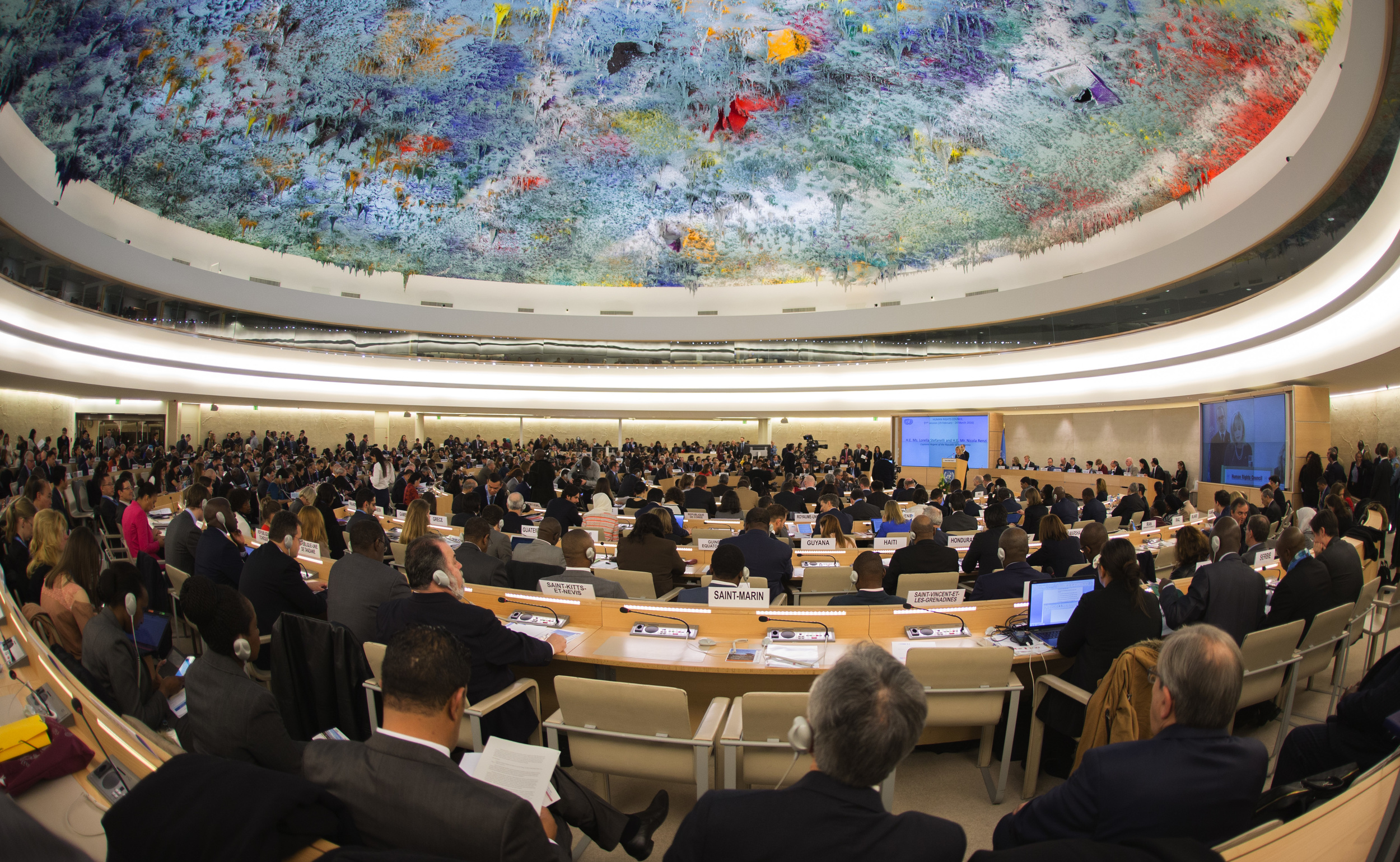
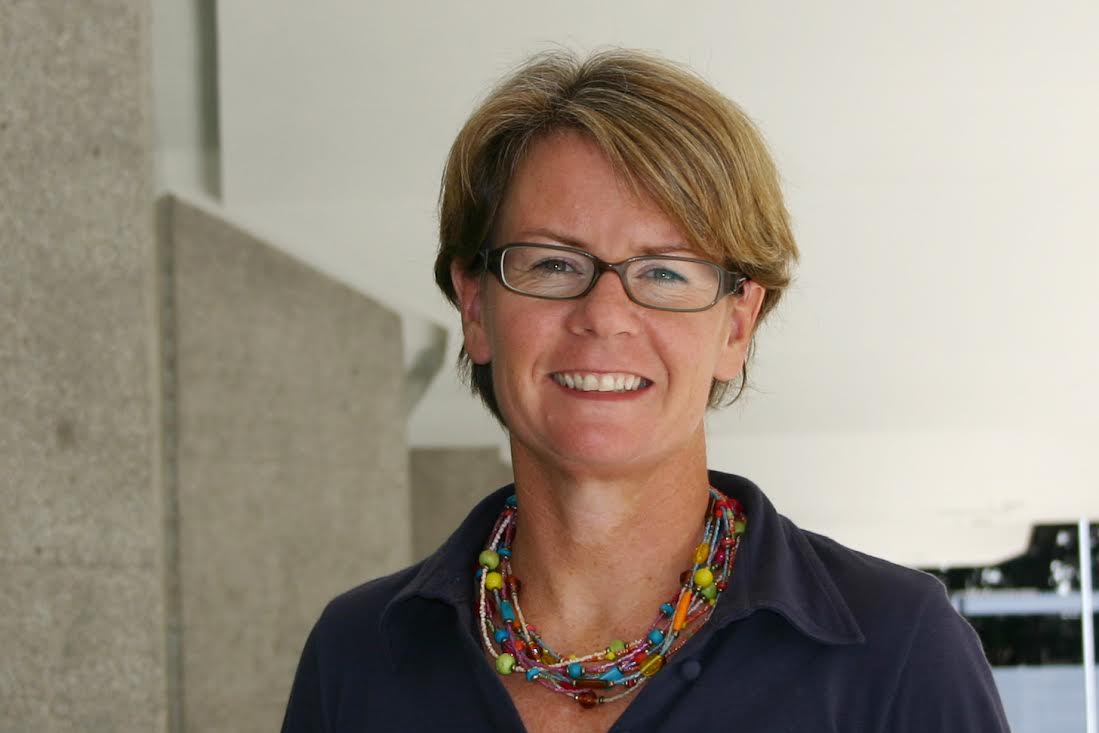
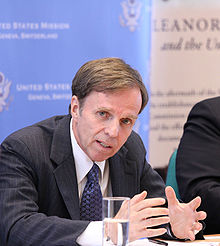
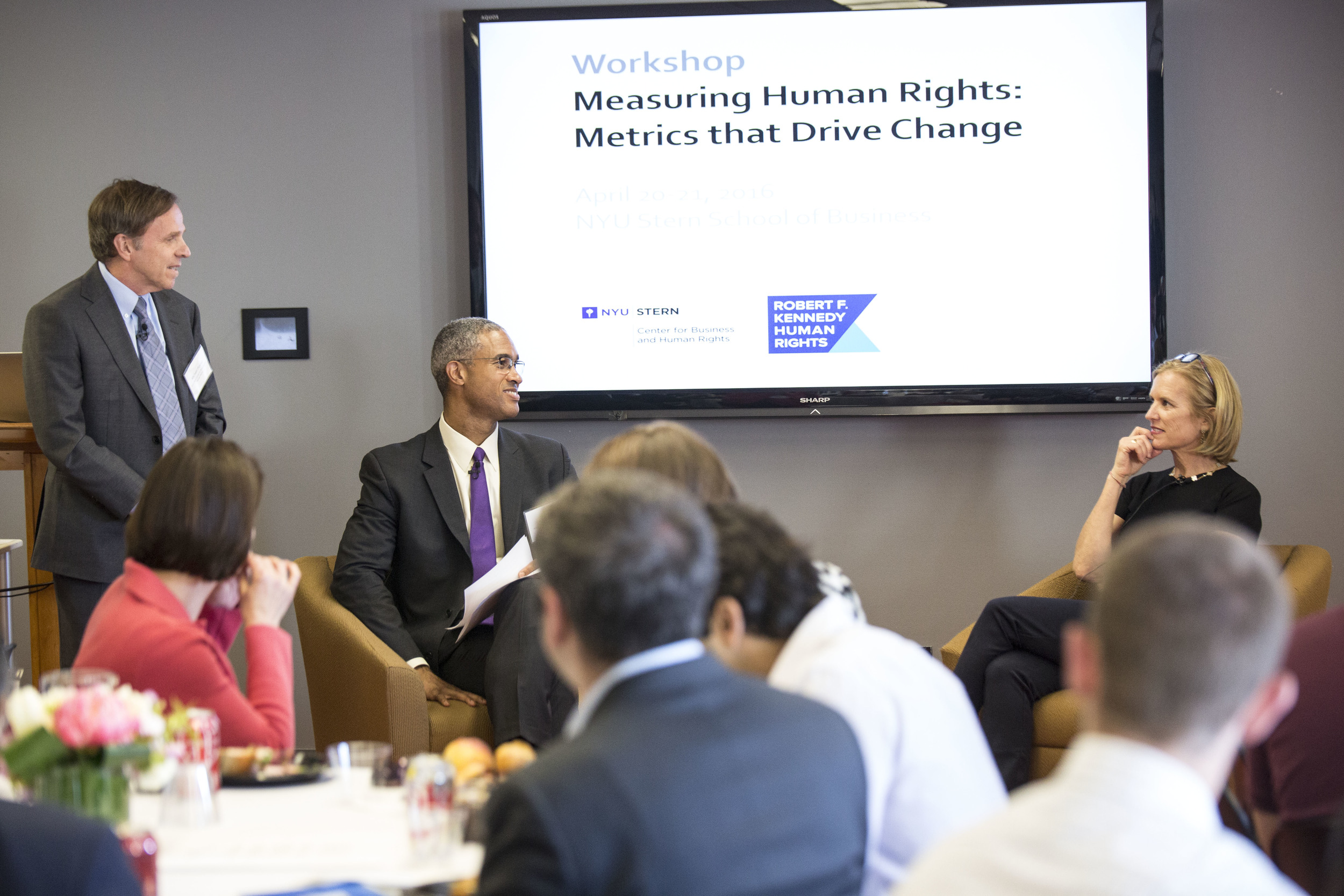


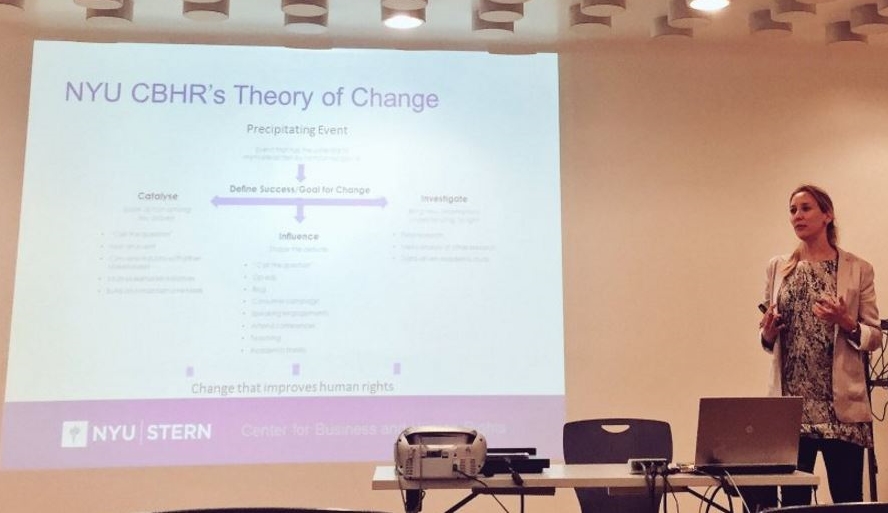

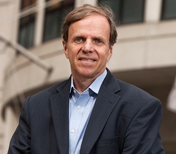
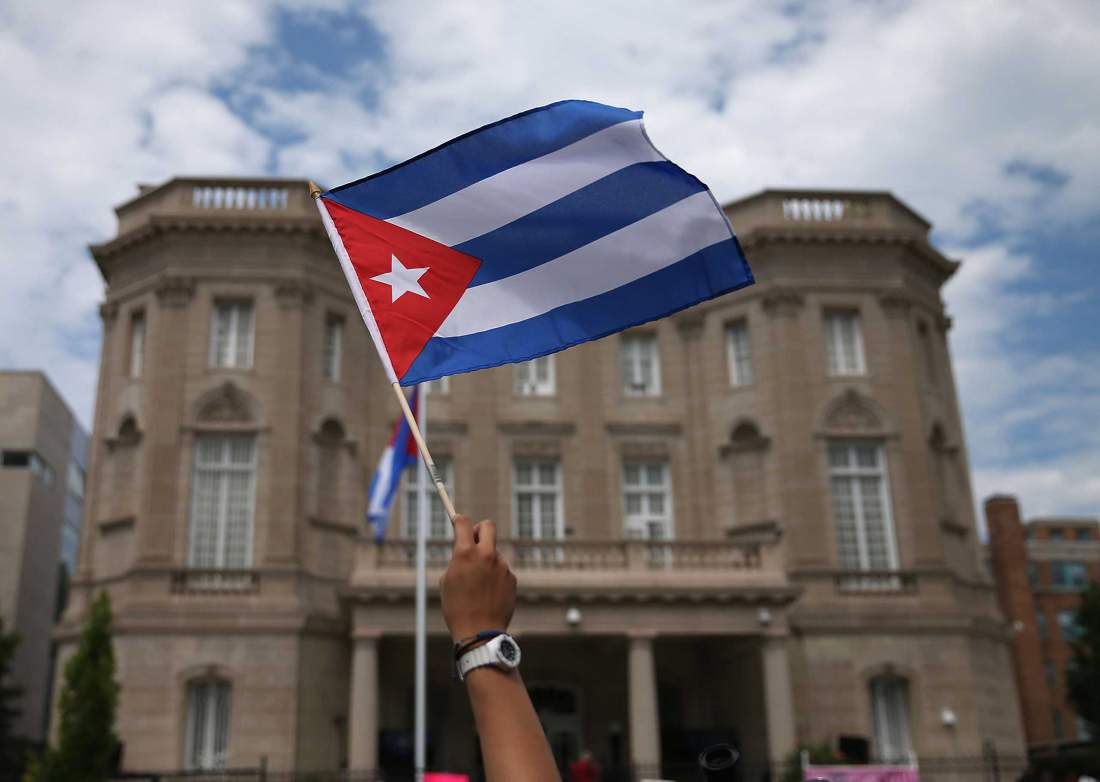
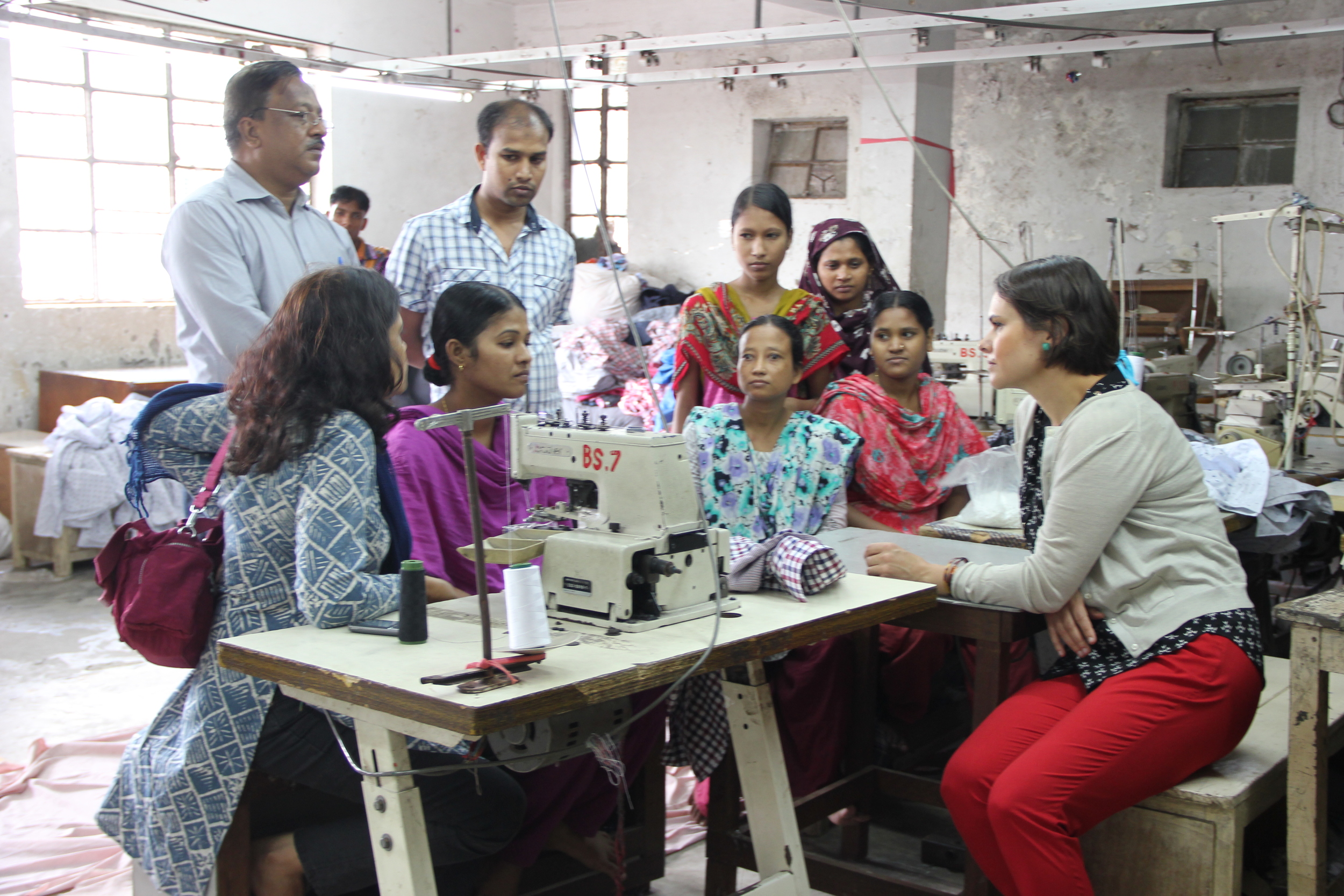
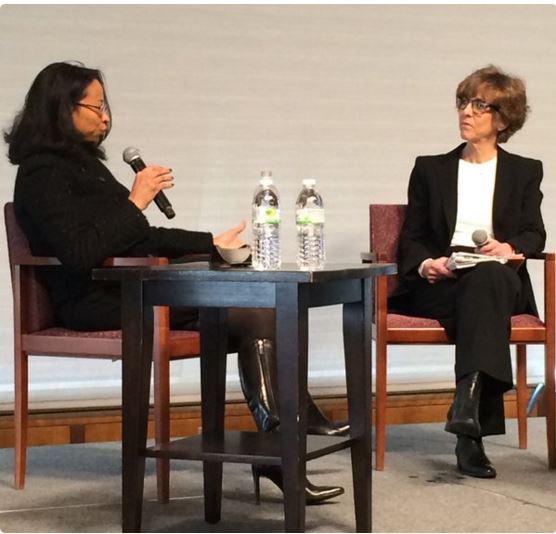


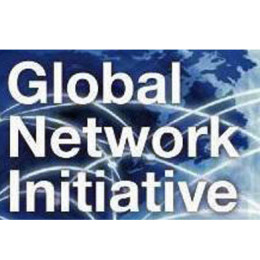

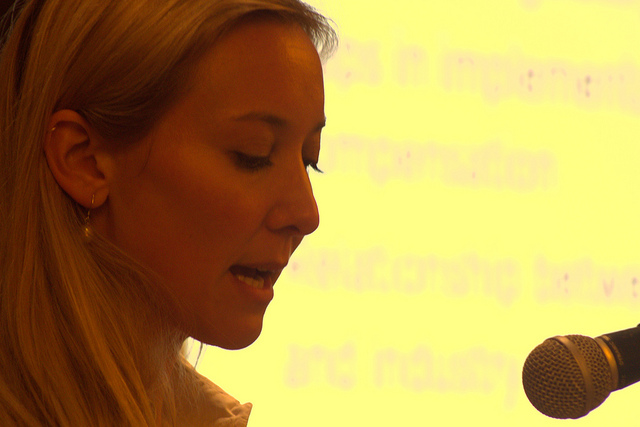



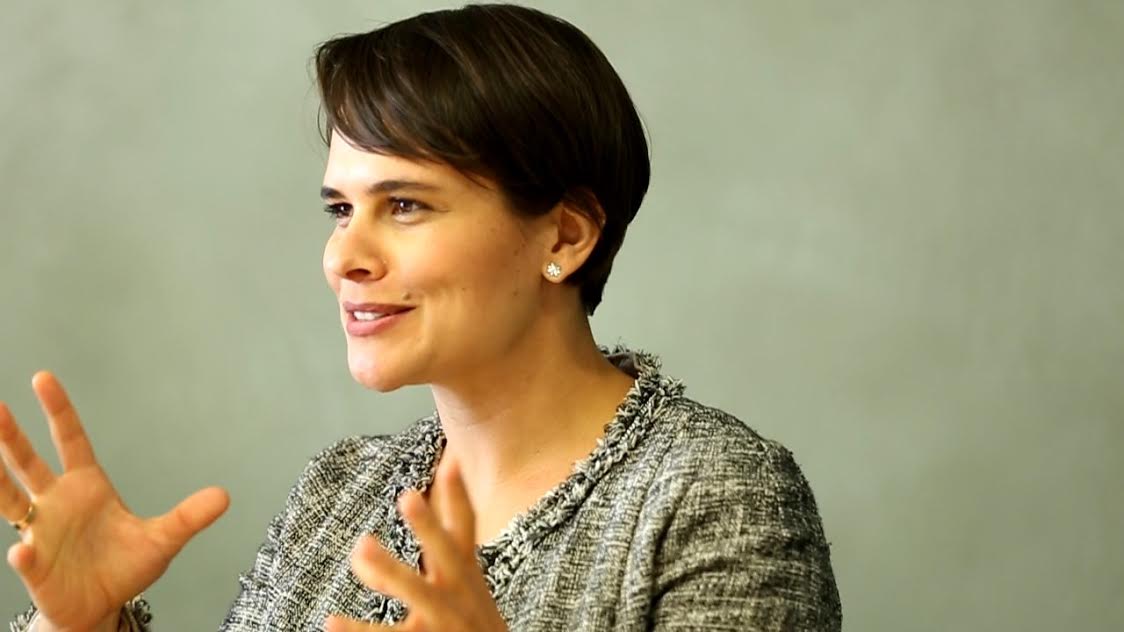
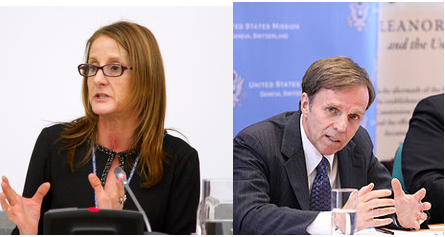



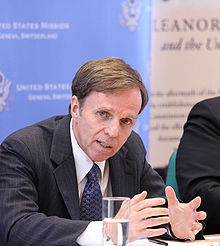
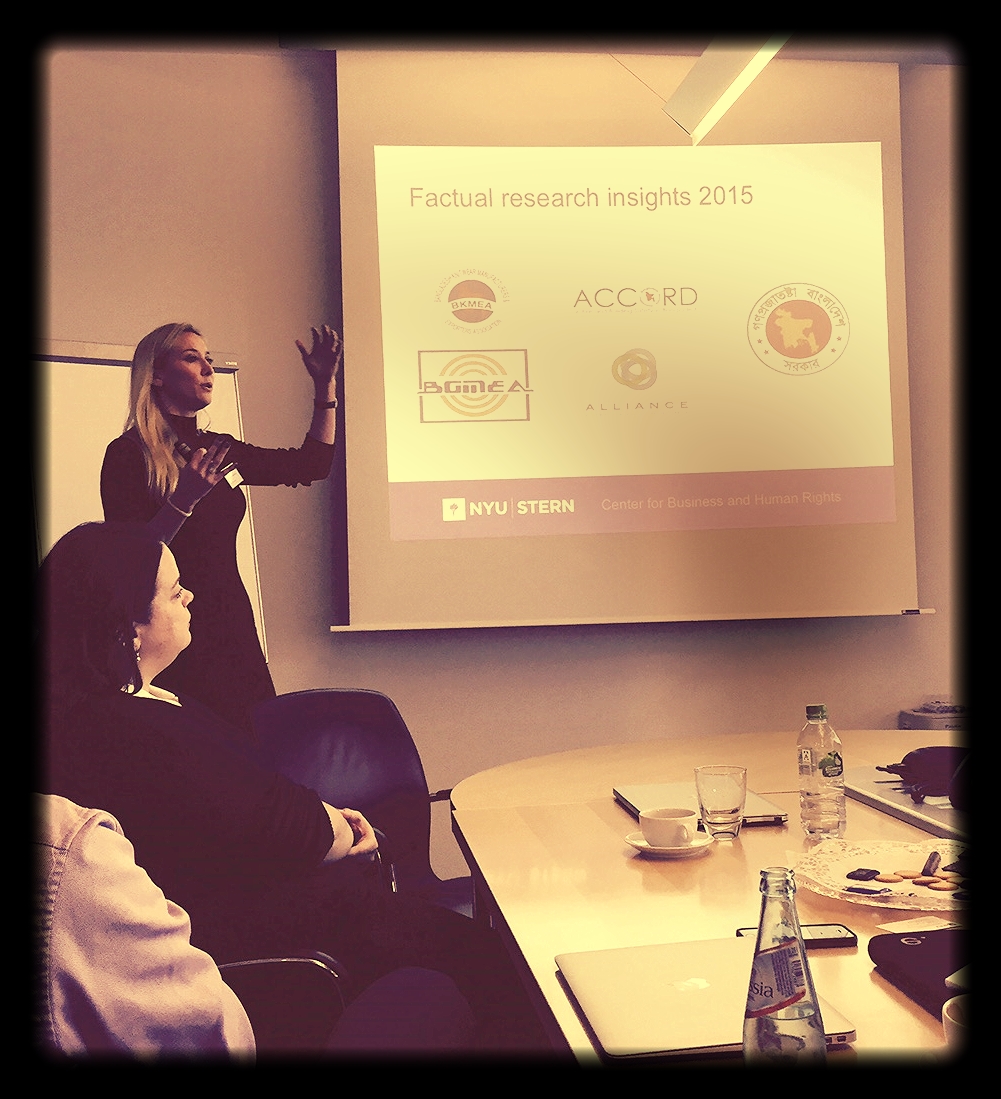



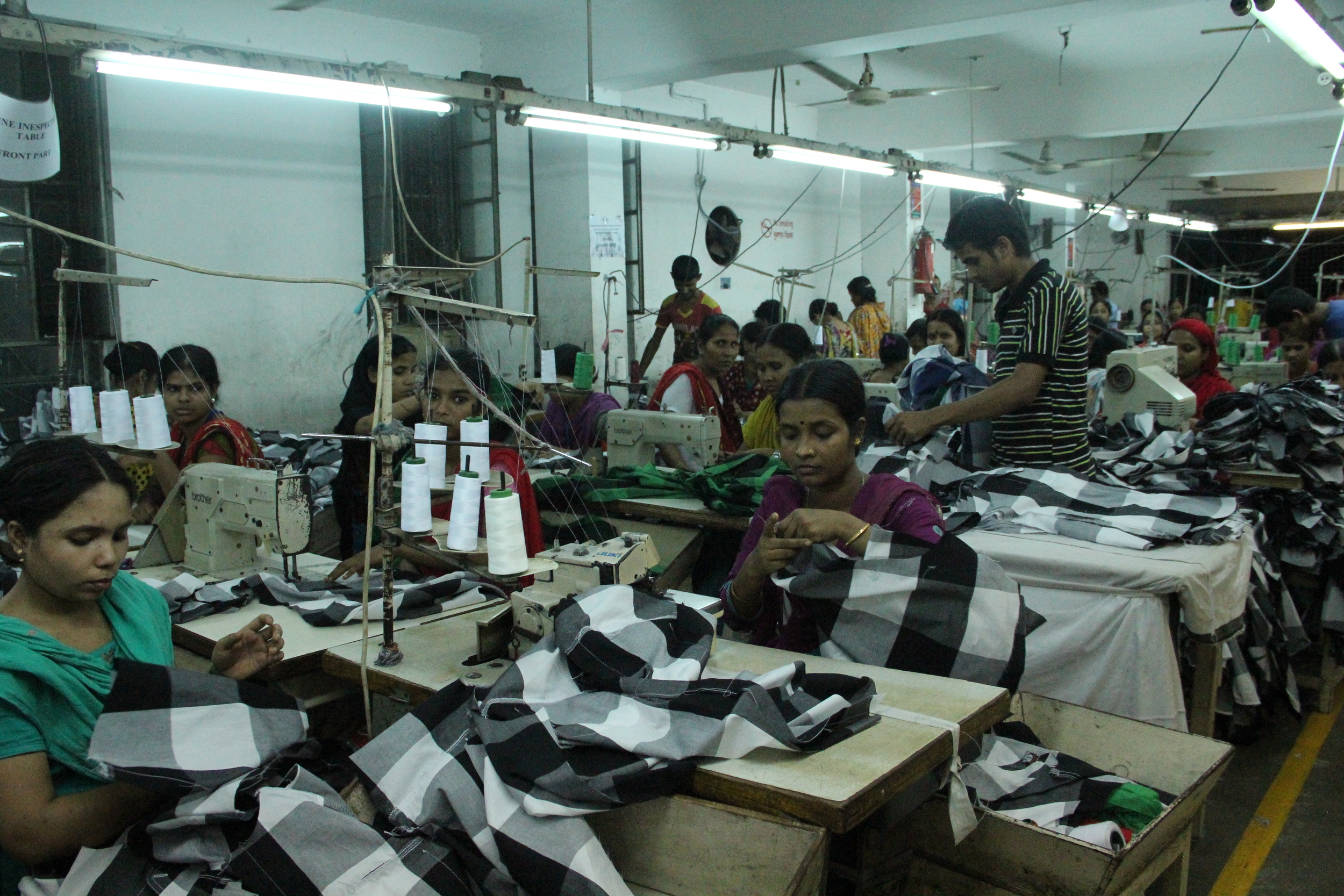
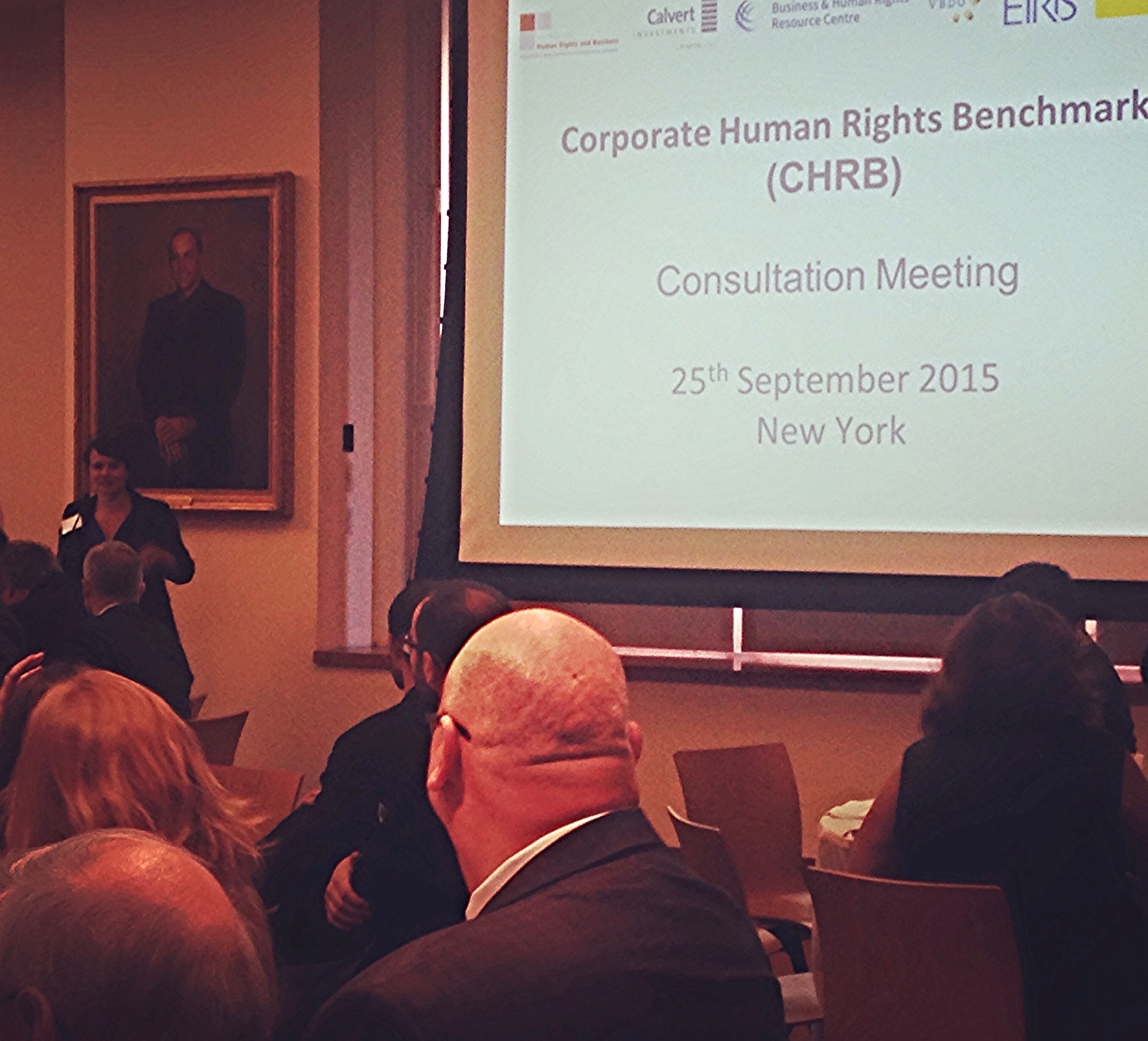



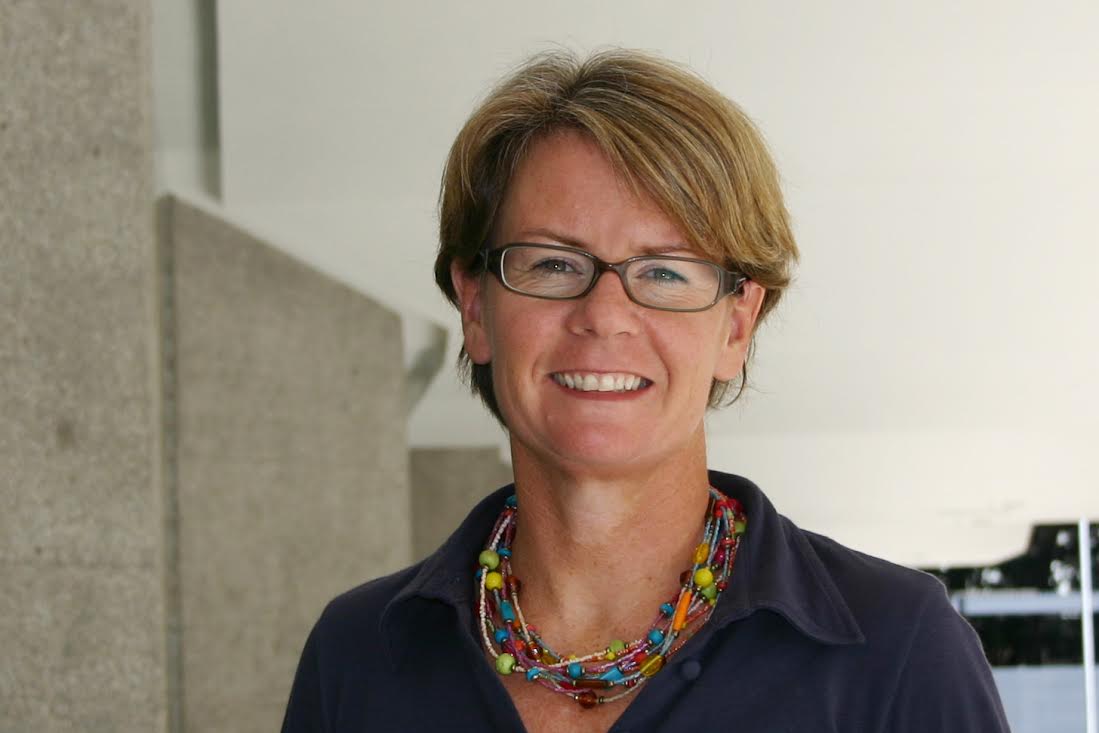
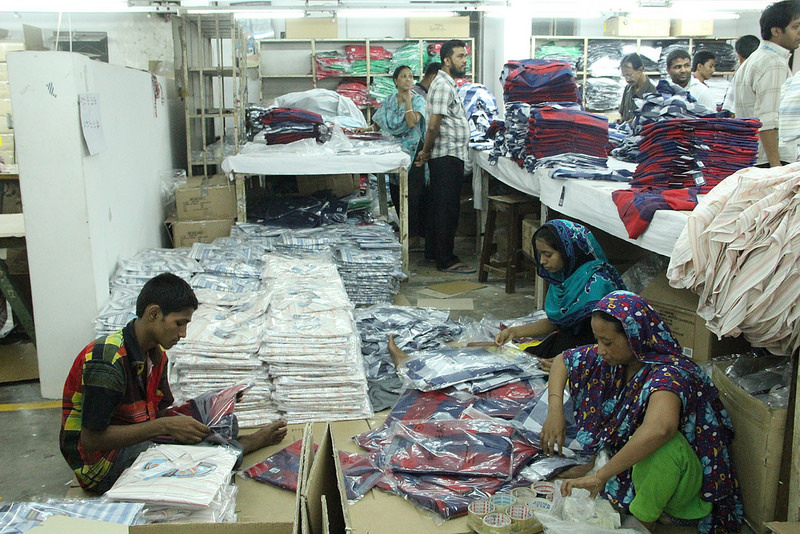

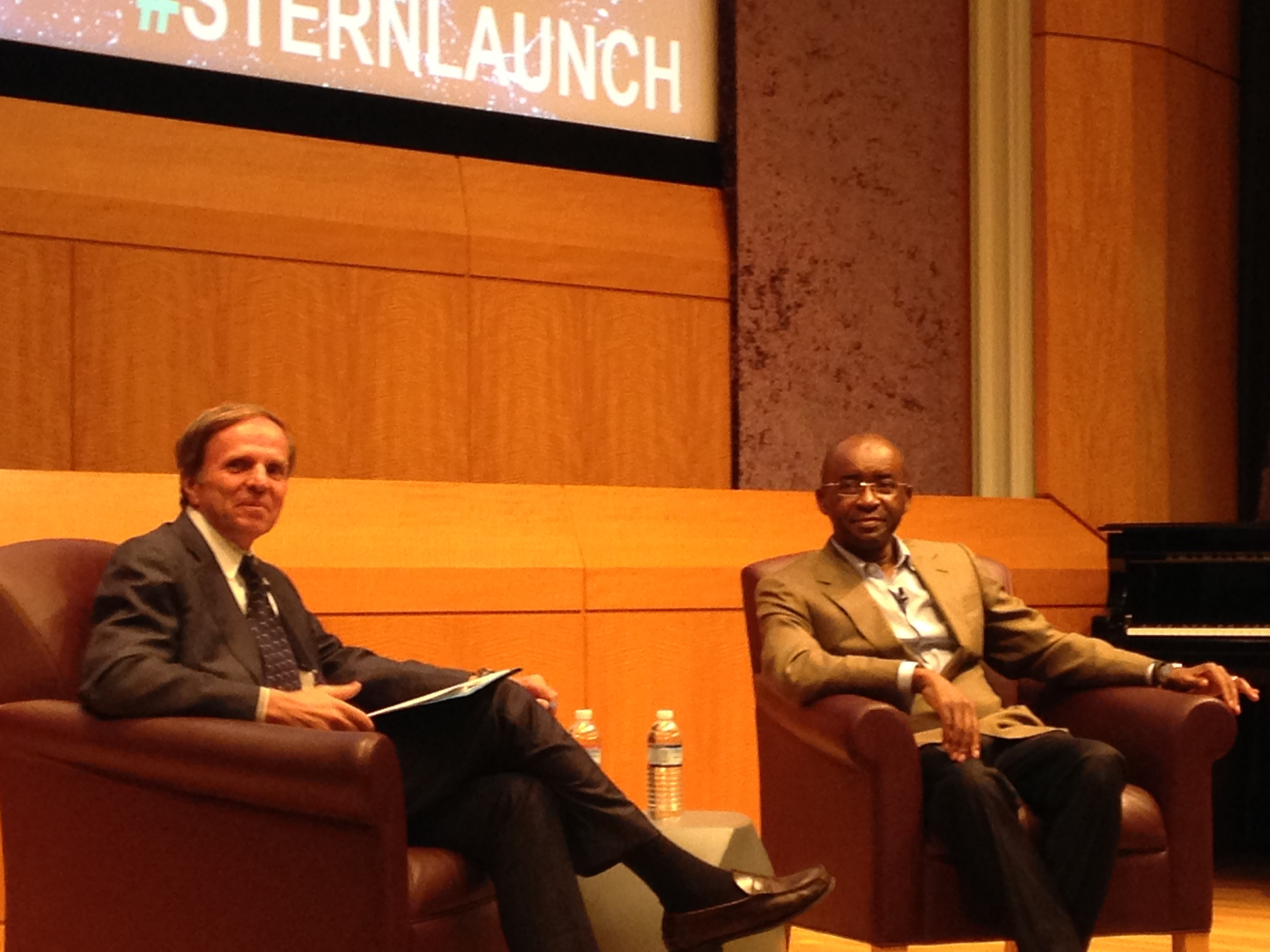

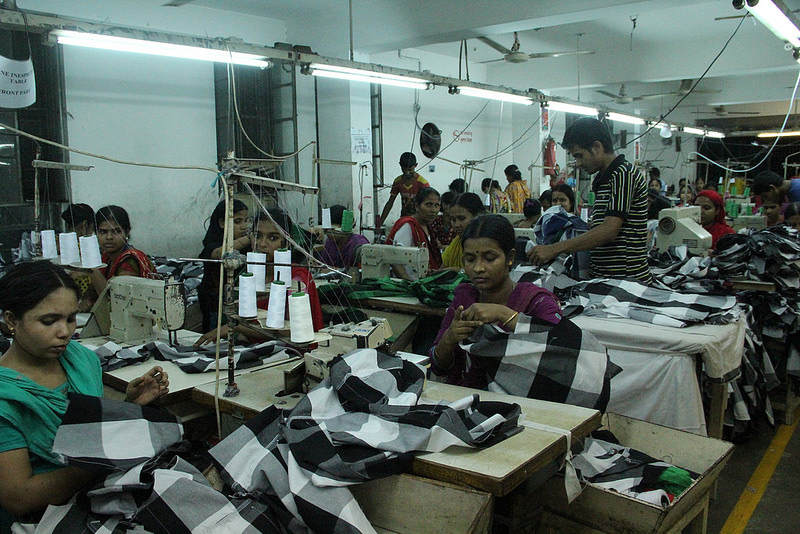
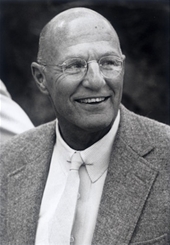

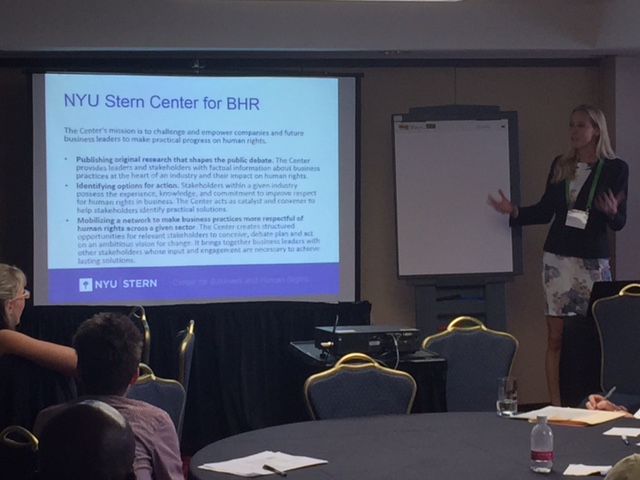
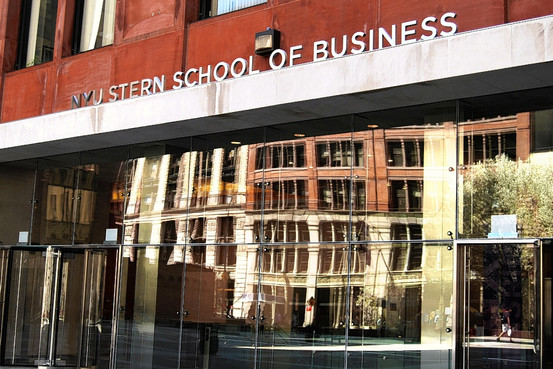
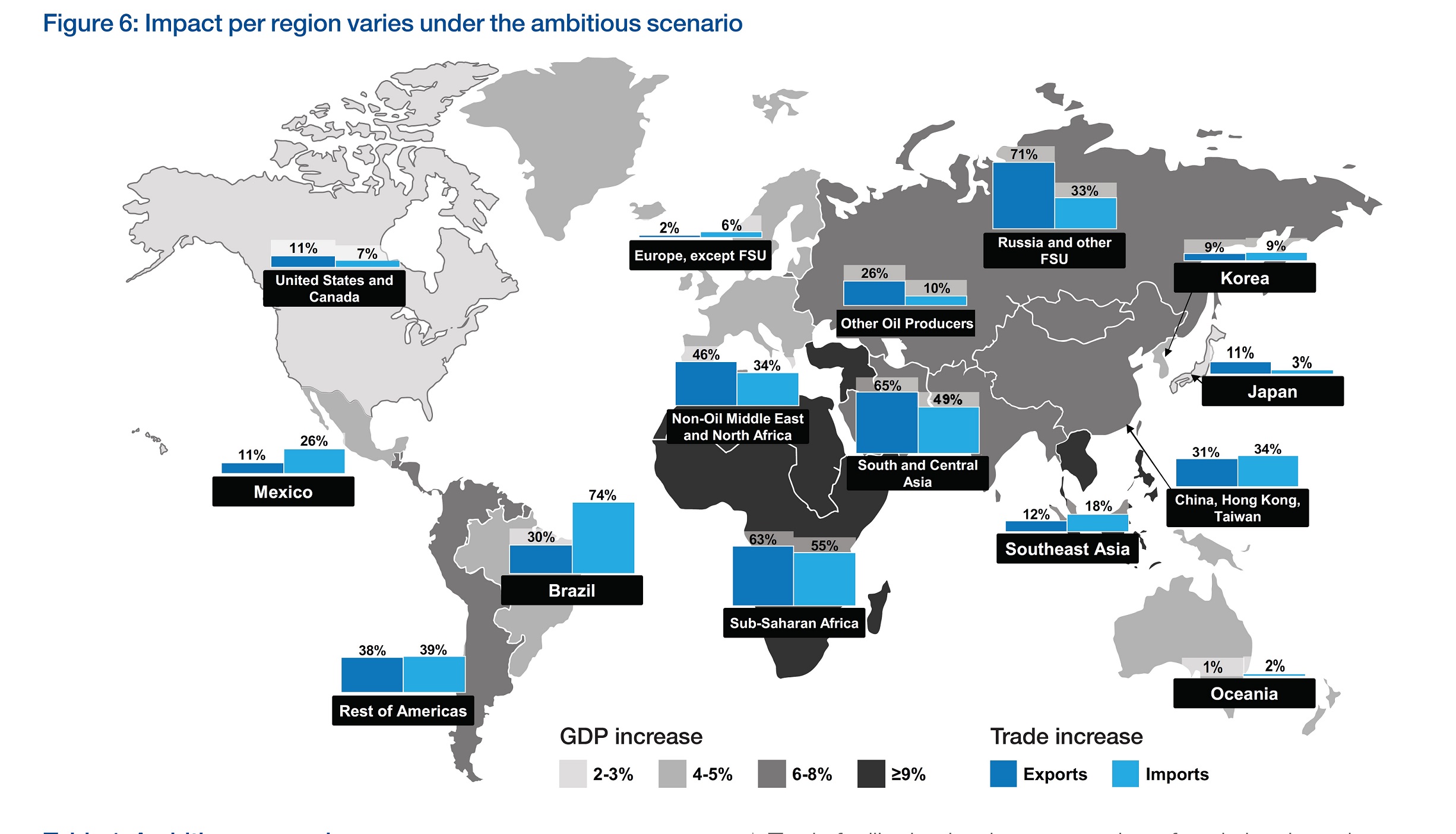

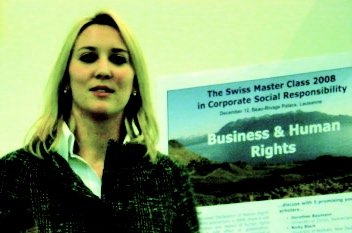
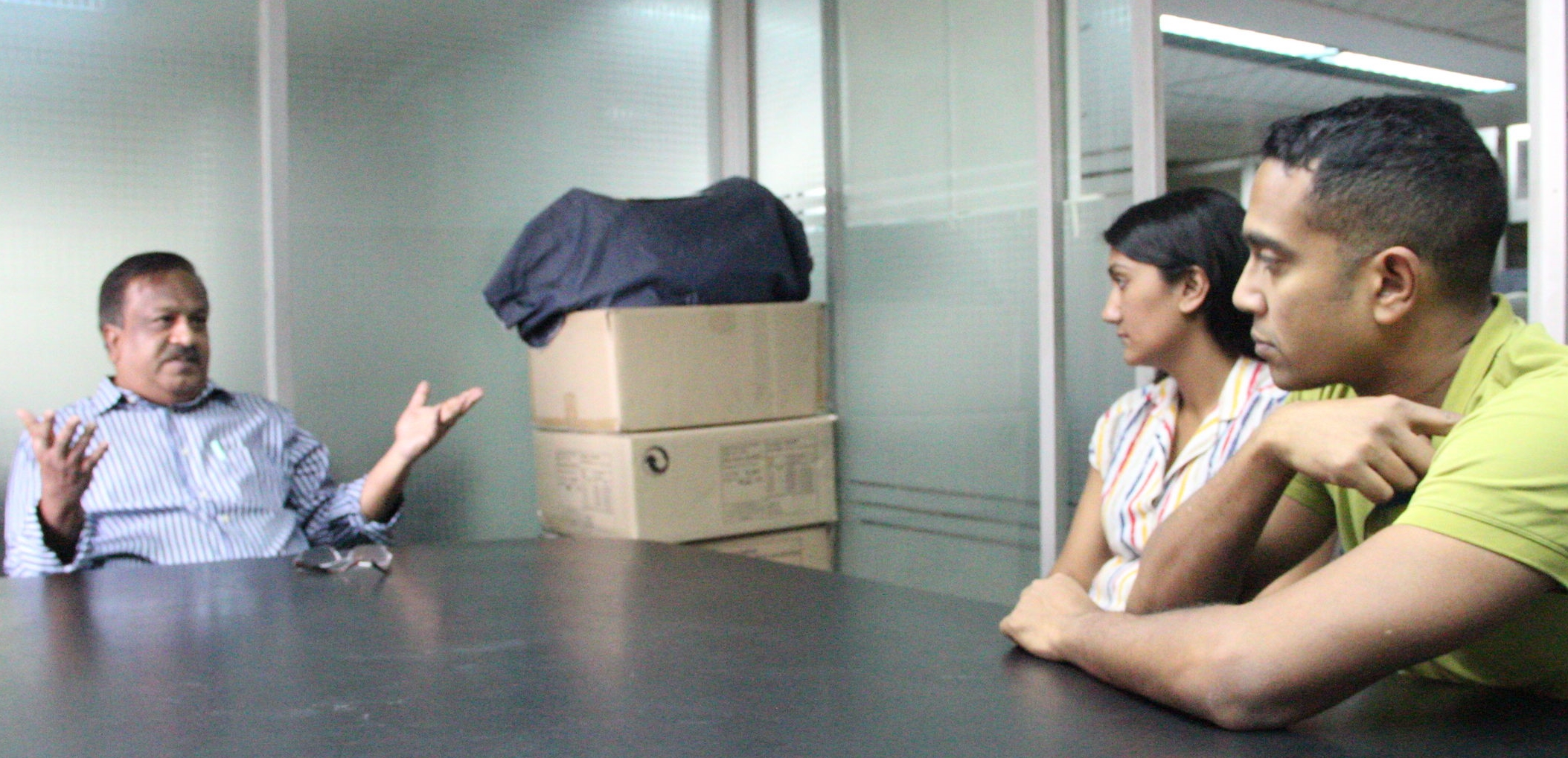
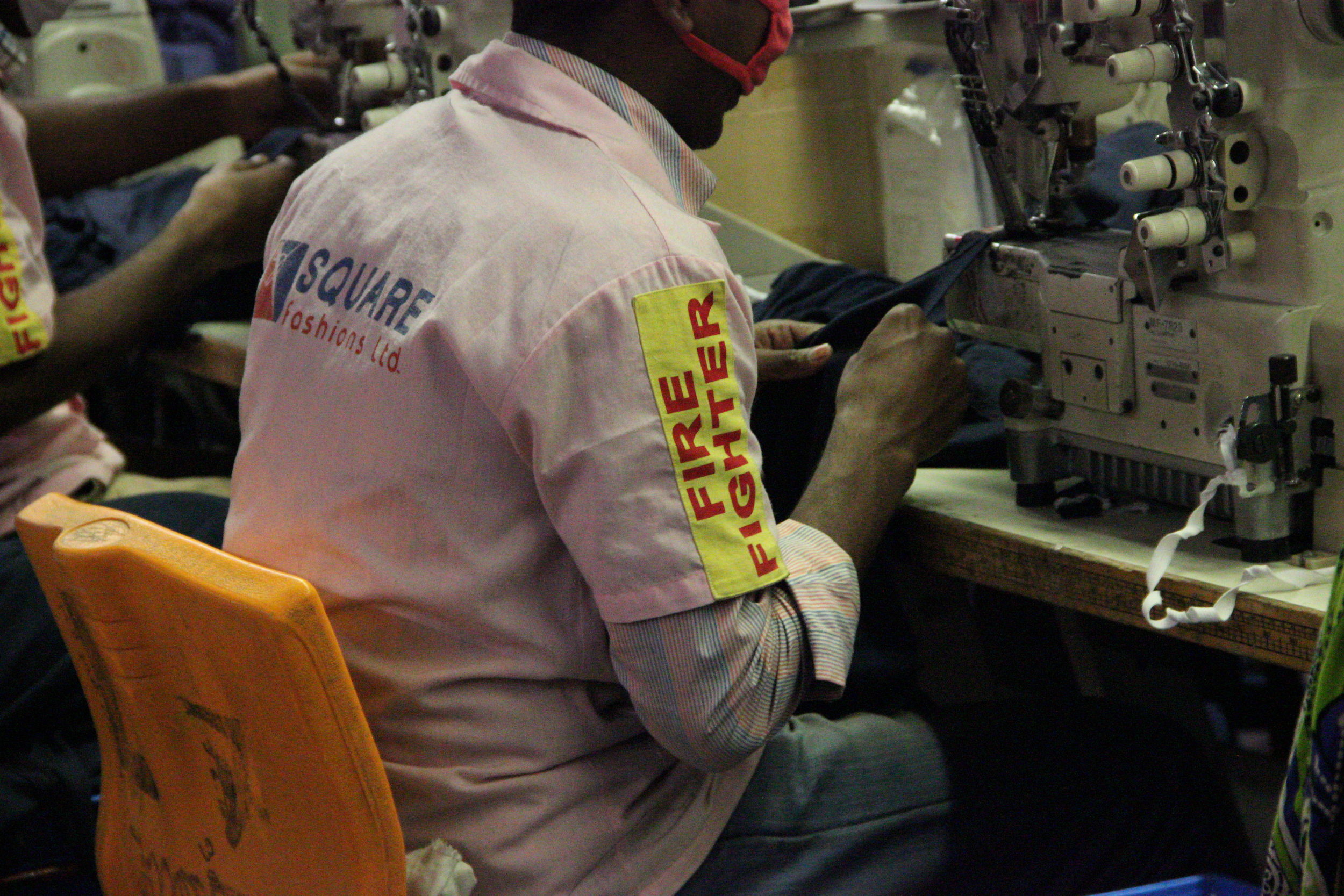
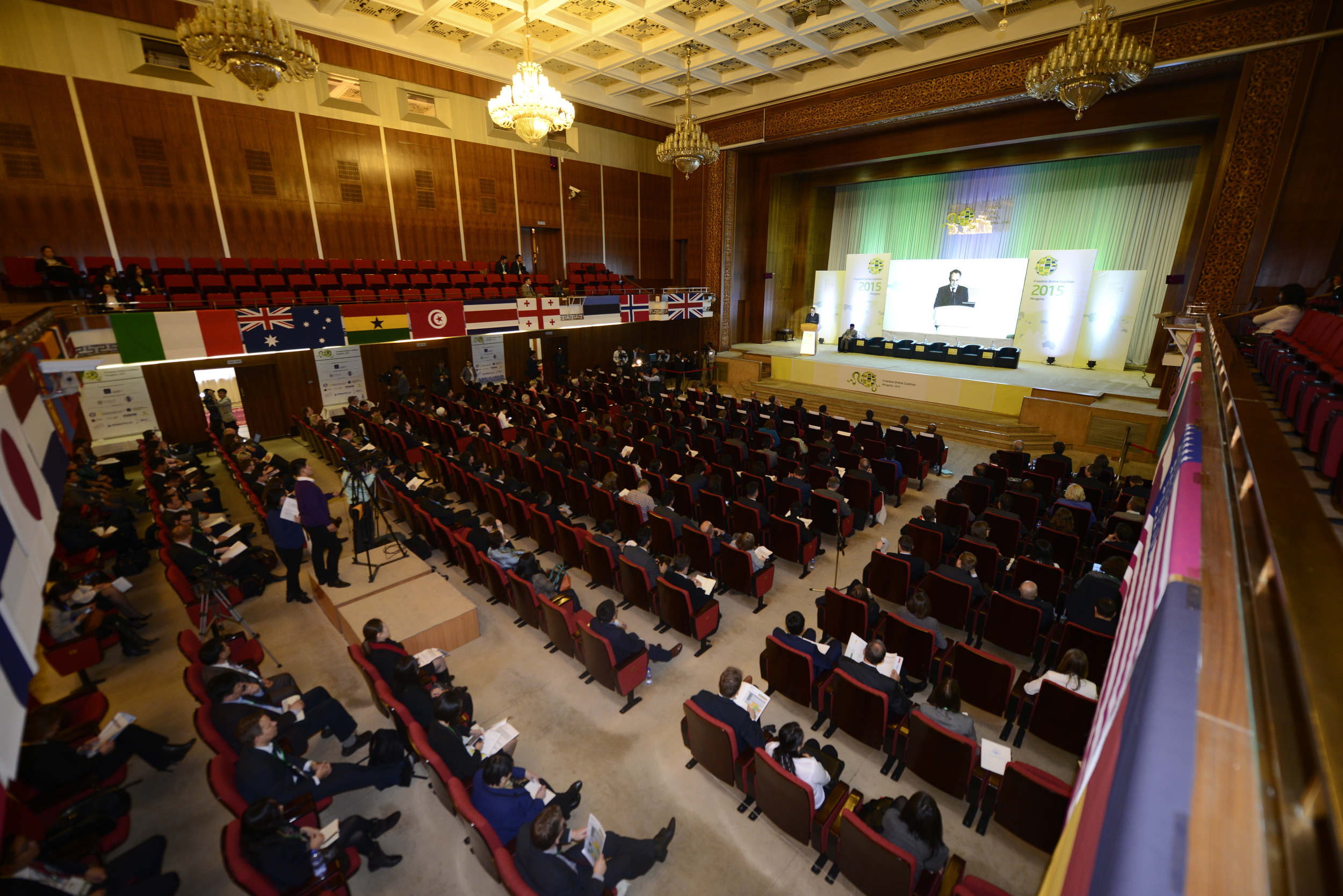
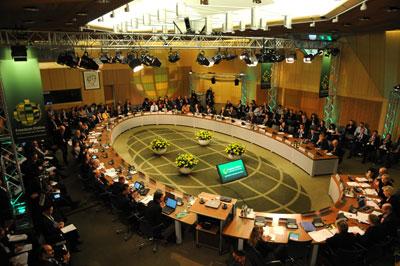
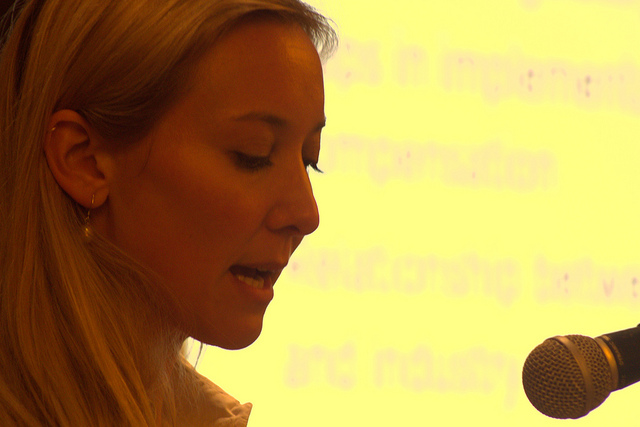
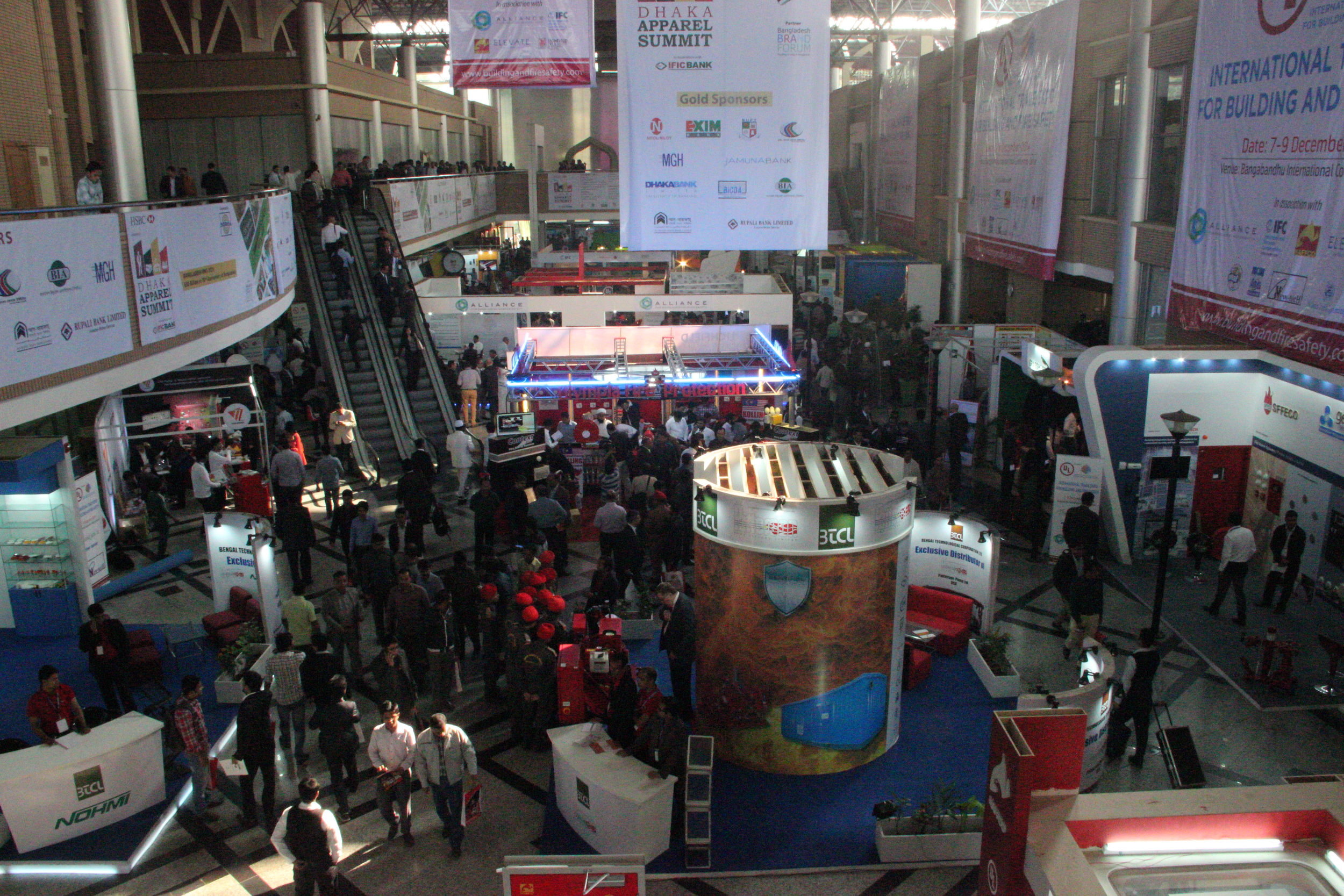


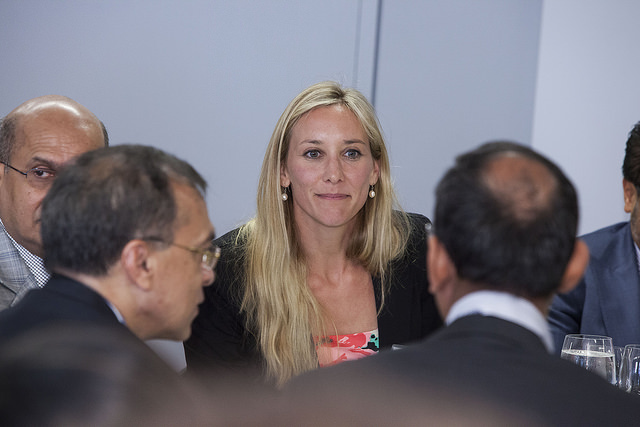
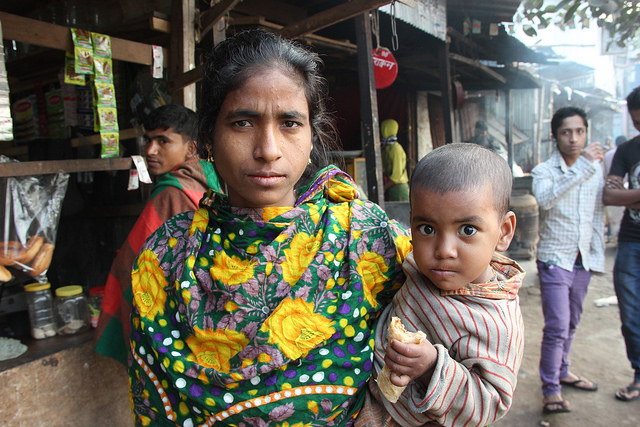

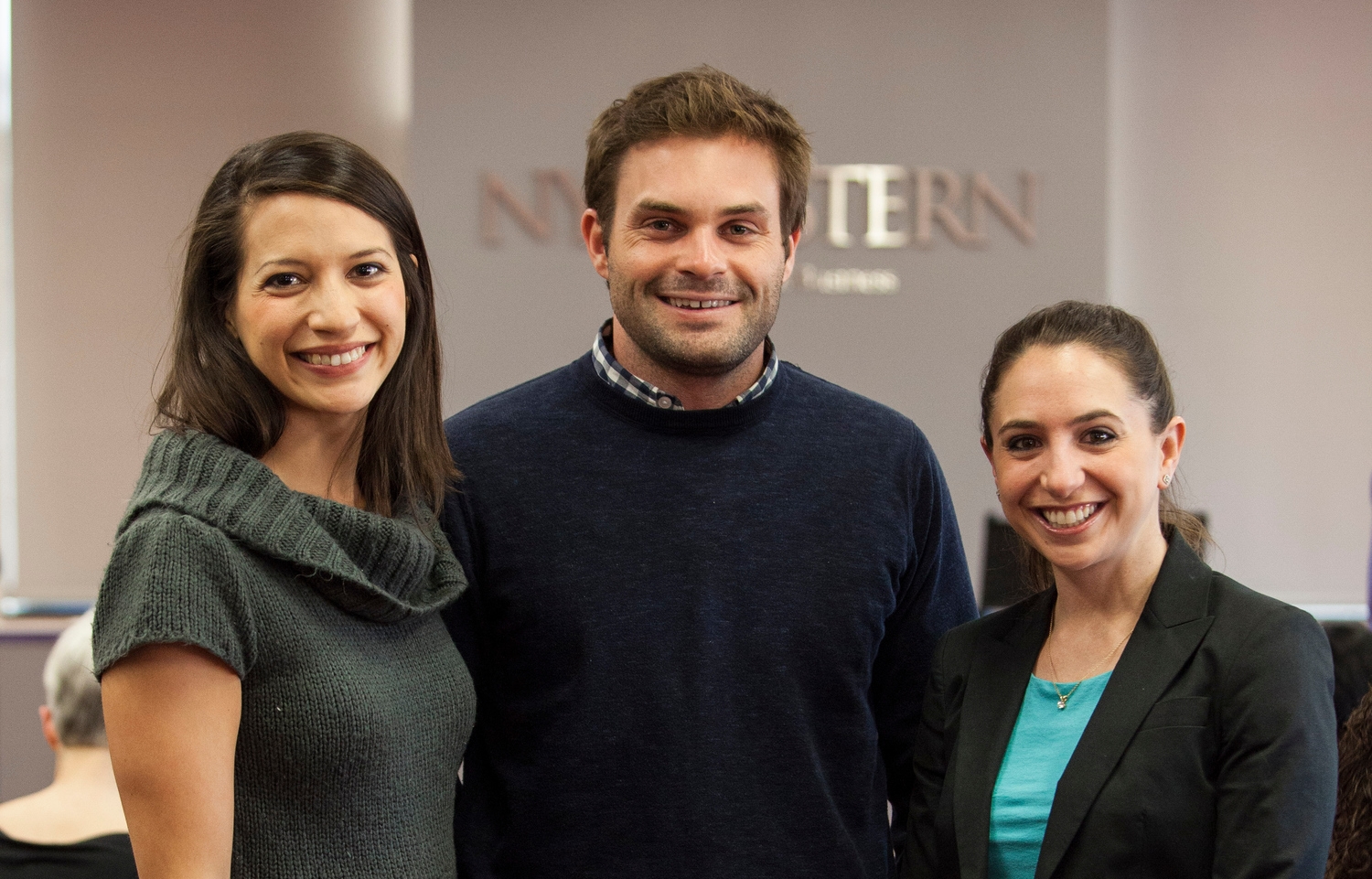

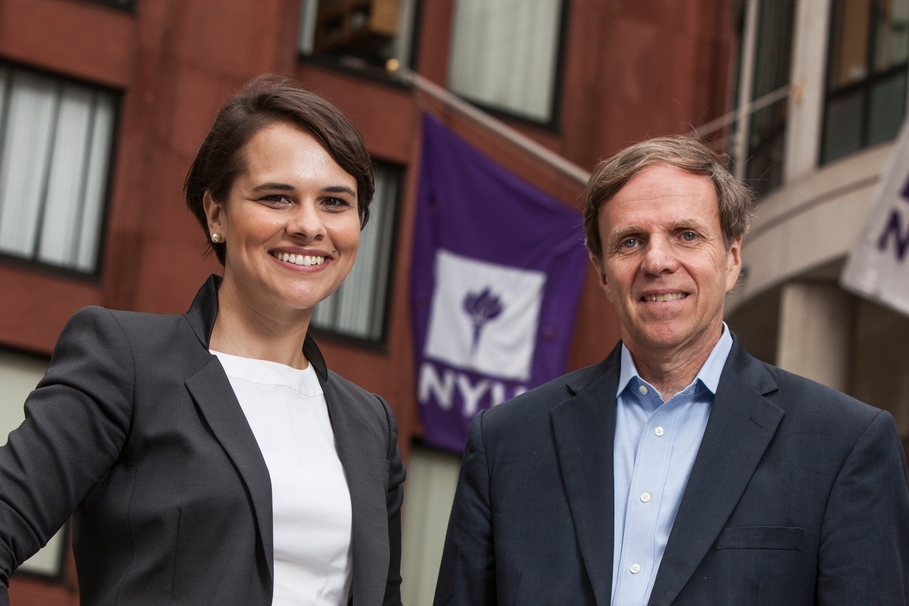
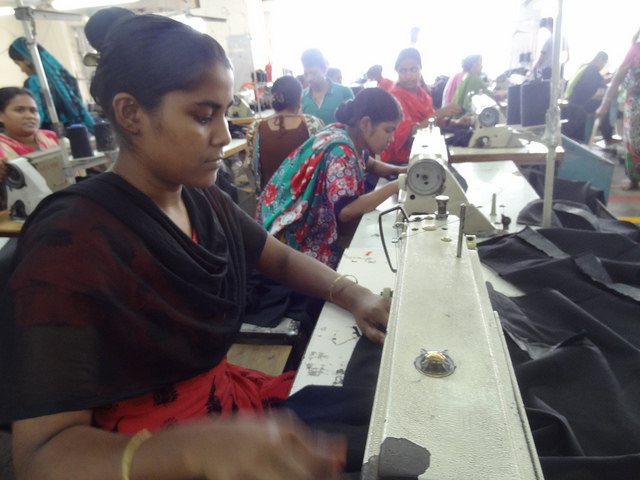
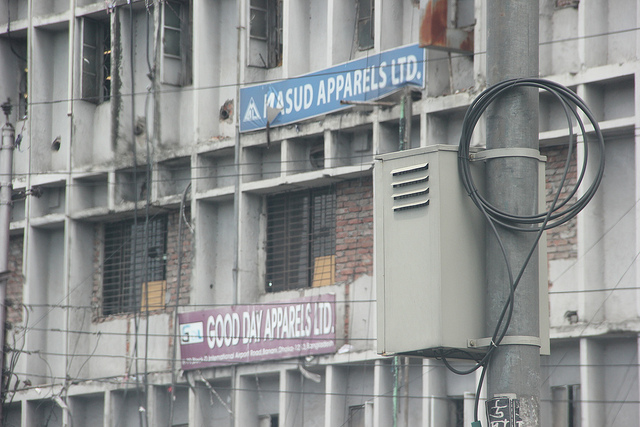

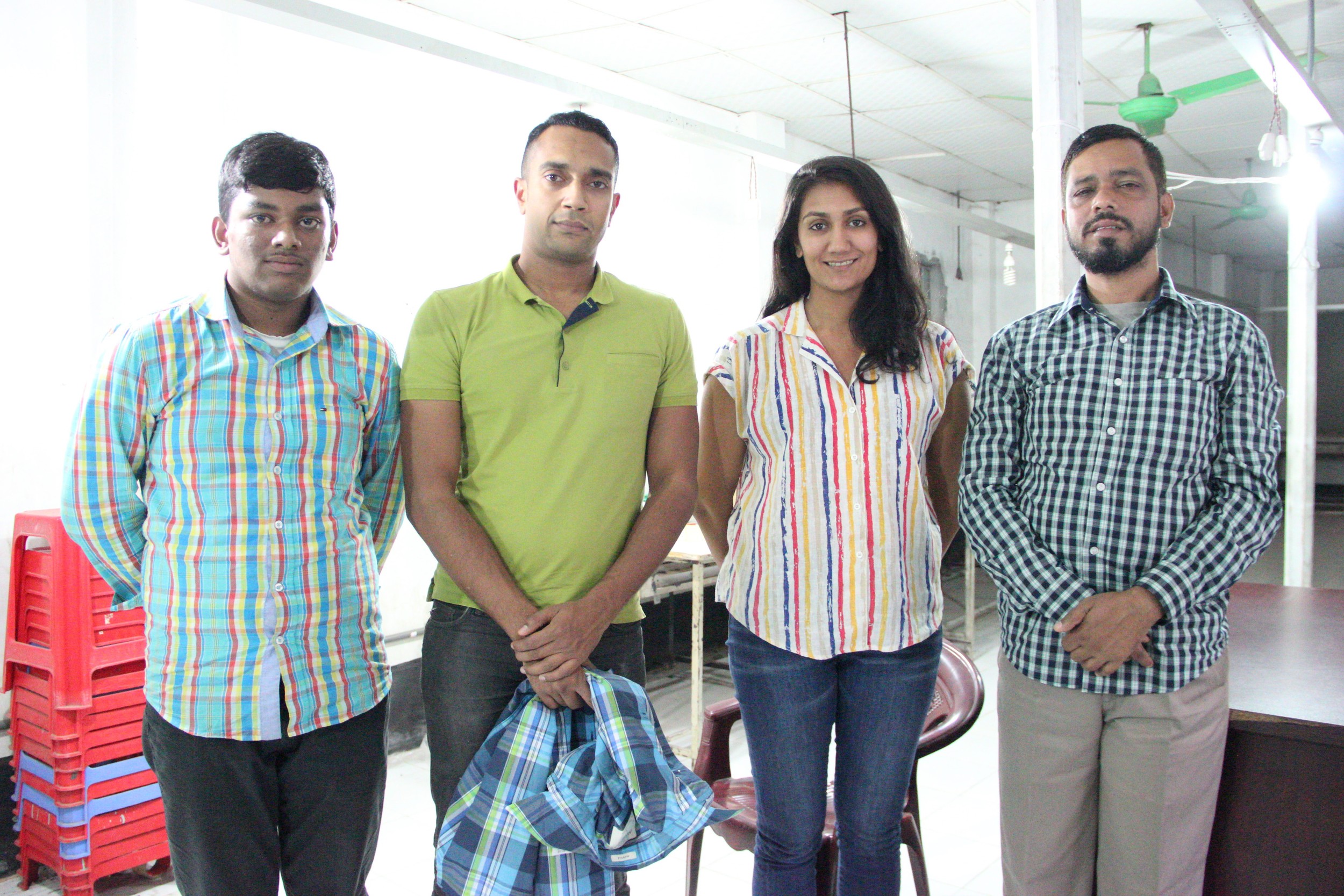
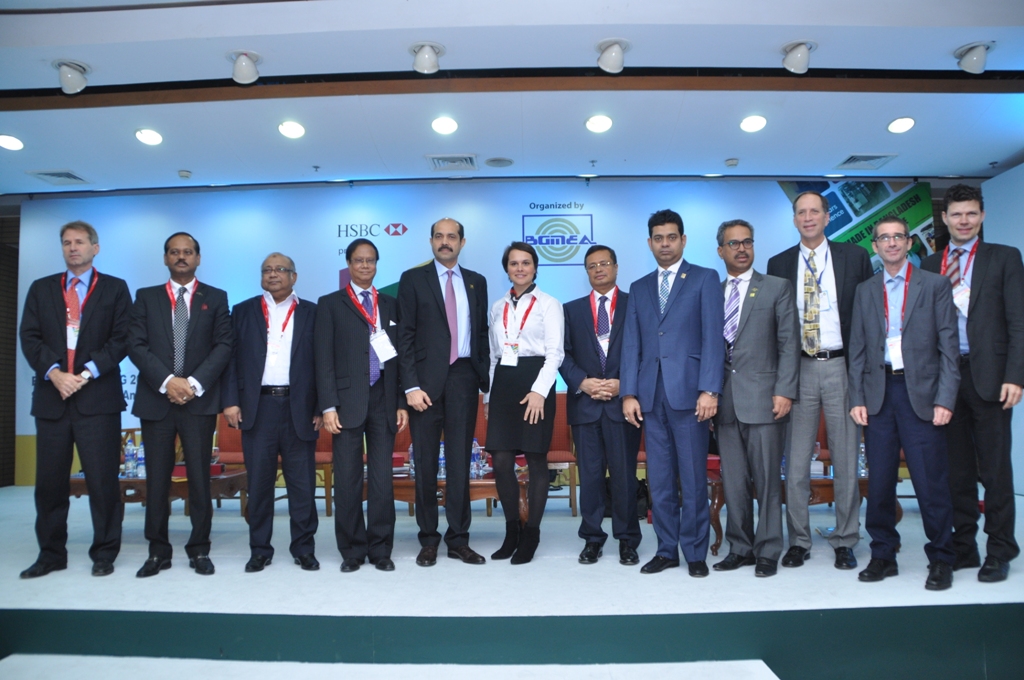
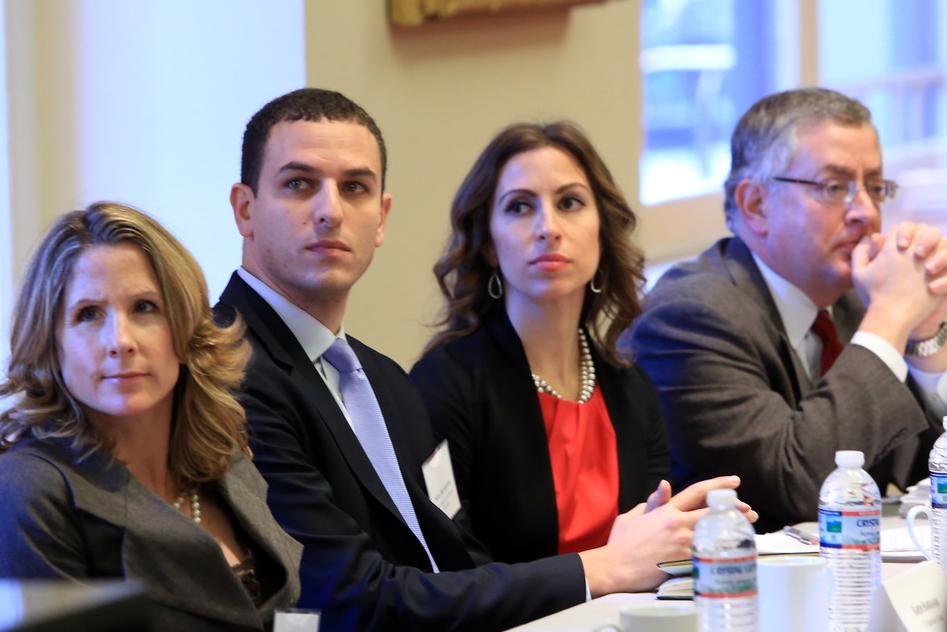
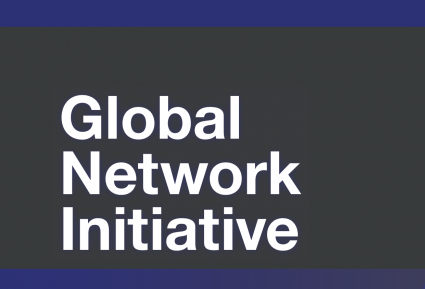
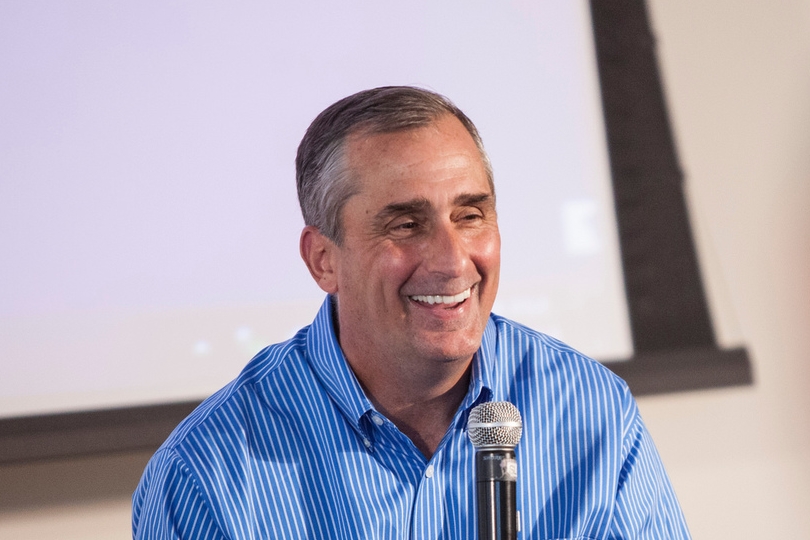
While Gulf-based and international human rights and labor rights groups have inspired crucial progress for the rights of migrants in the Gulf in recent years, the next wave of serious change will likely be inspired by for-profit businesses.